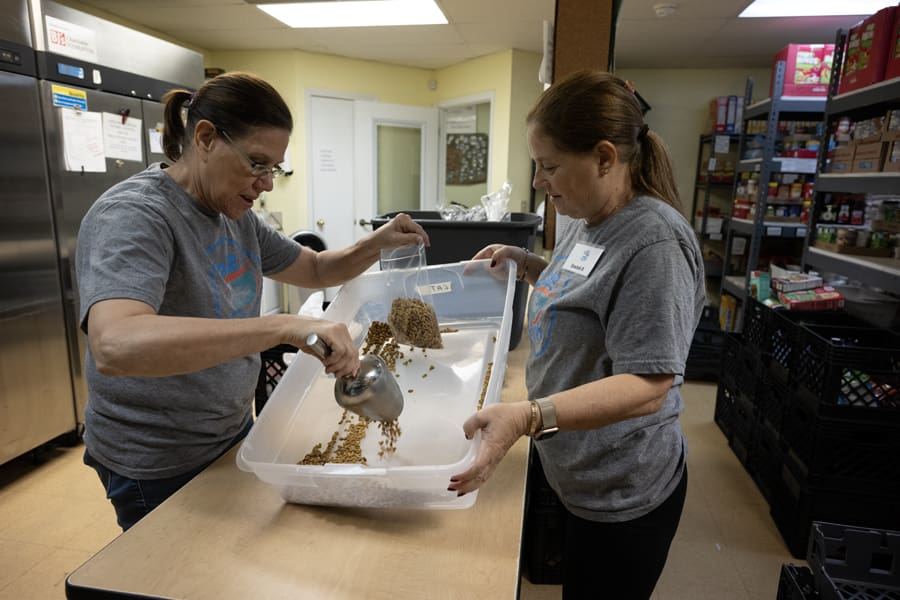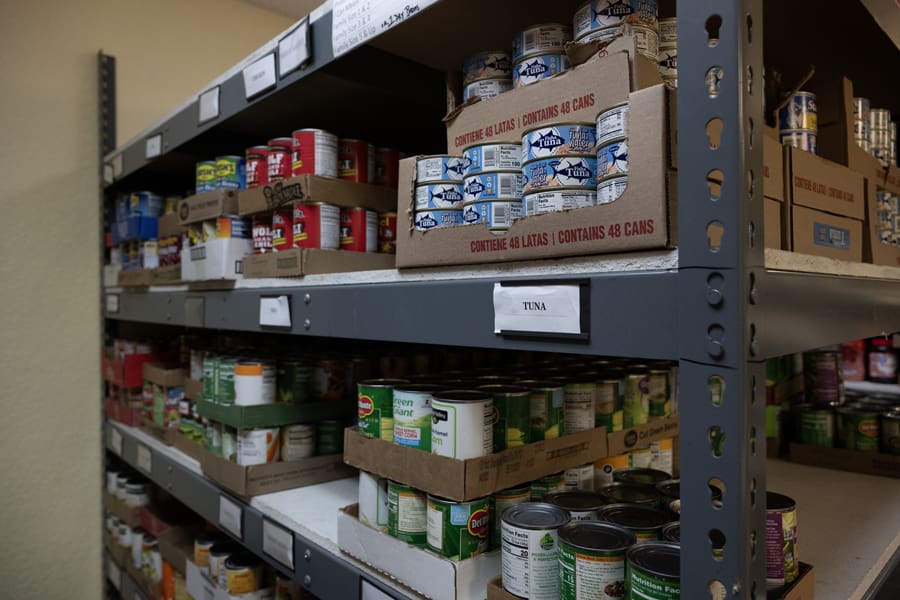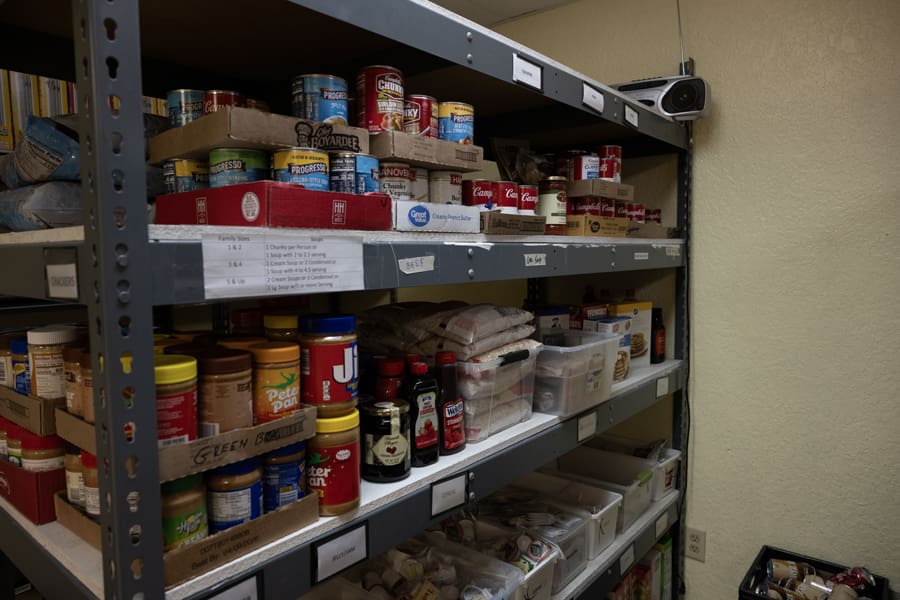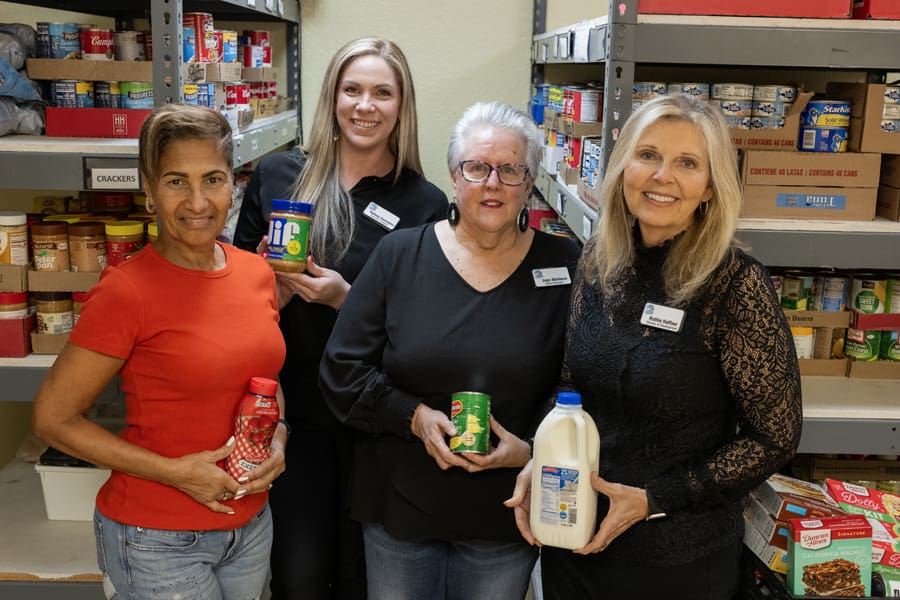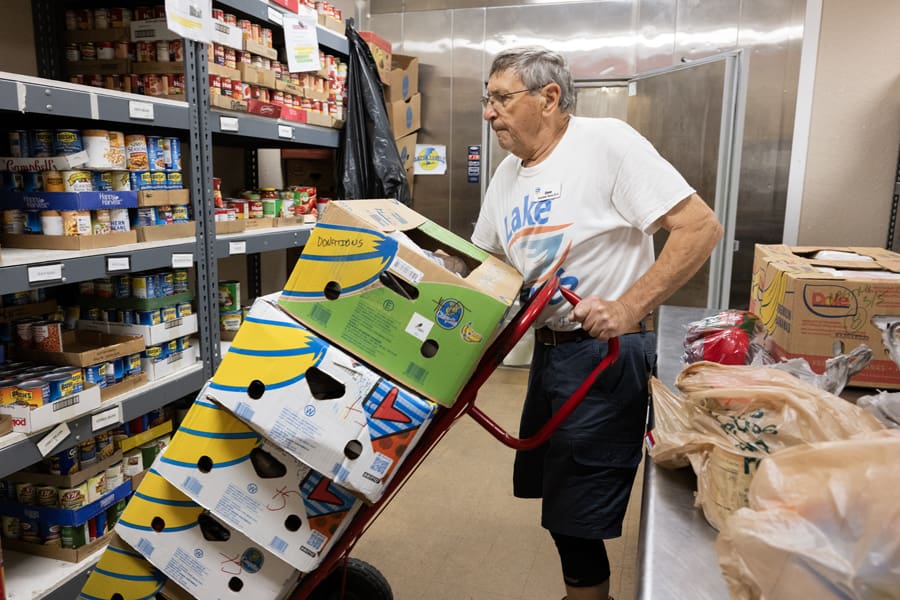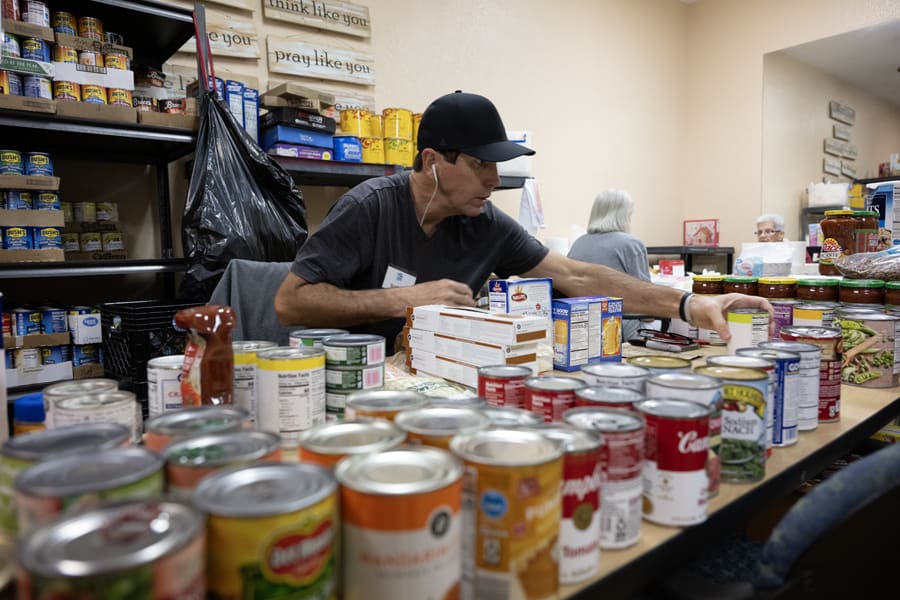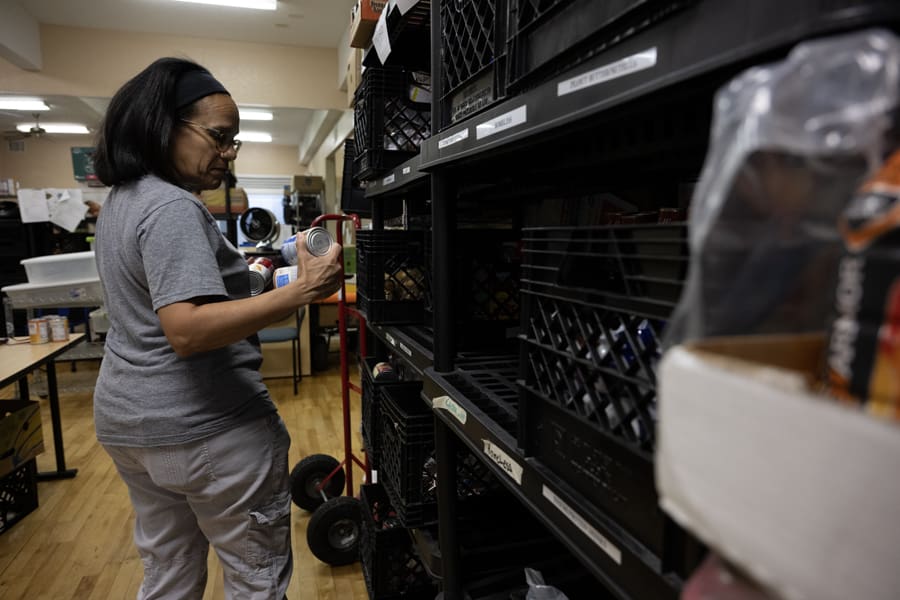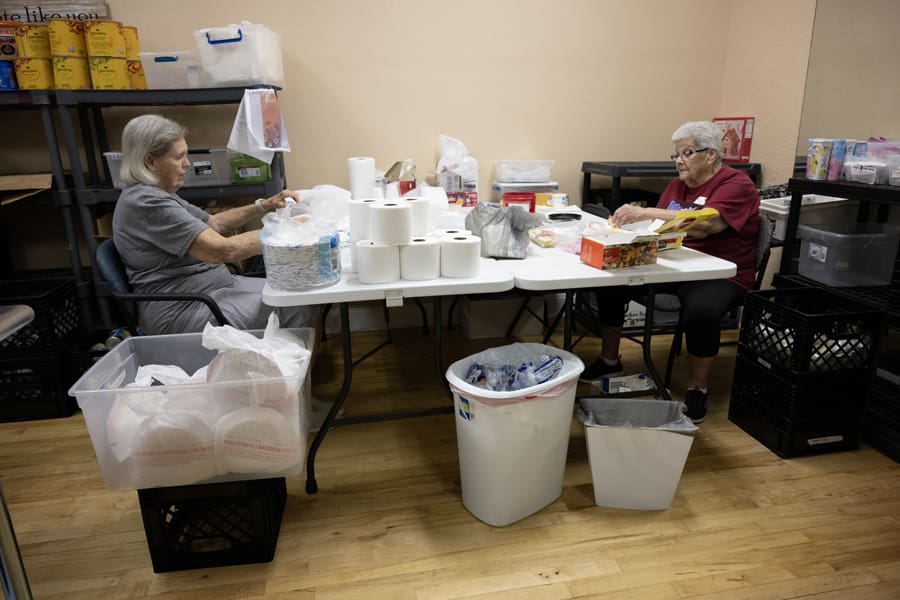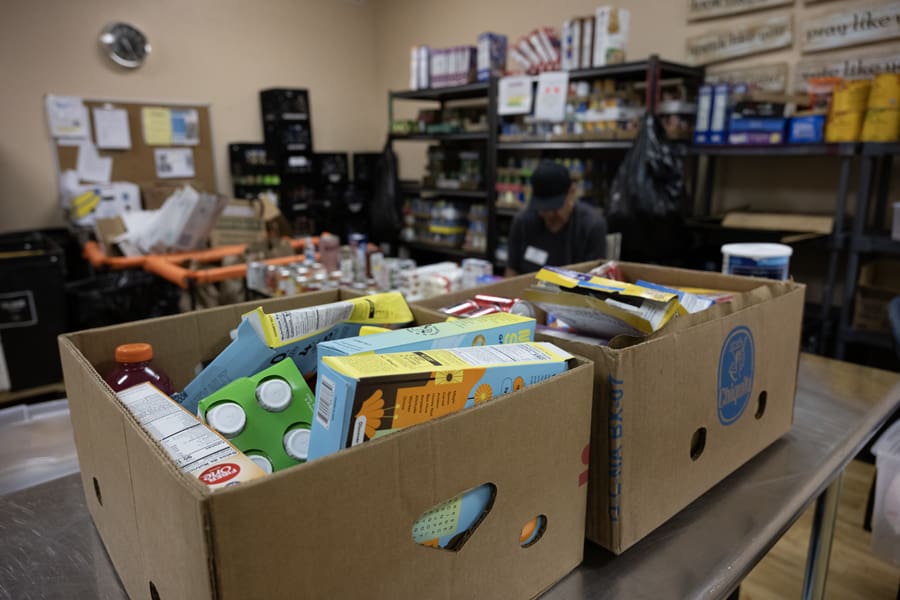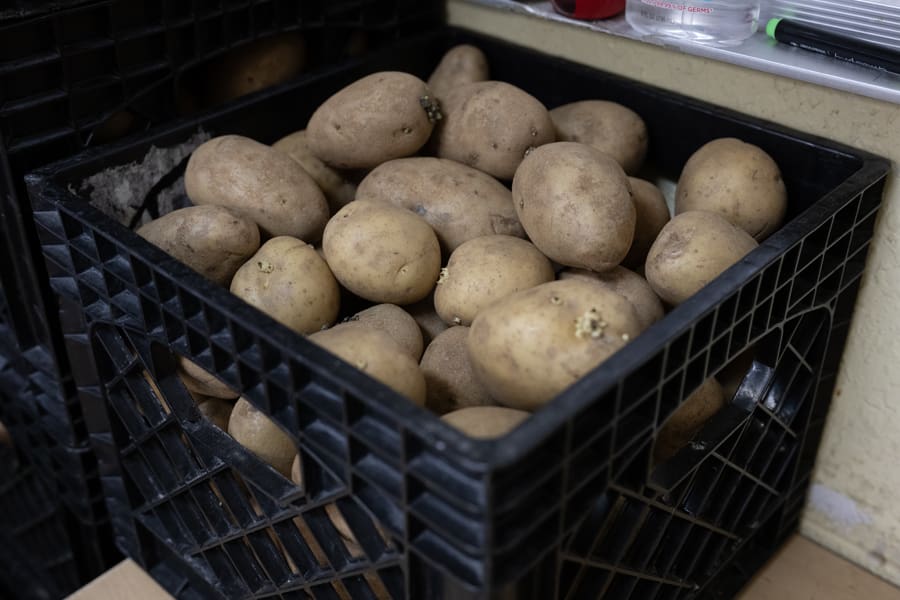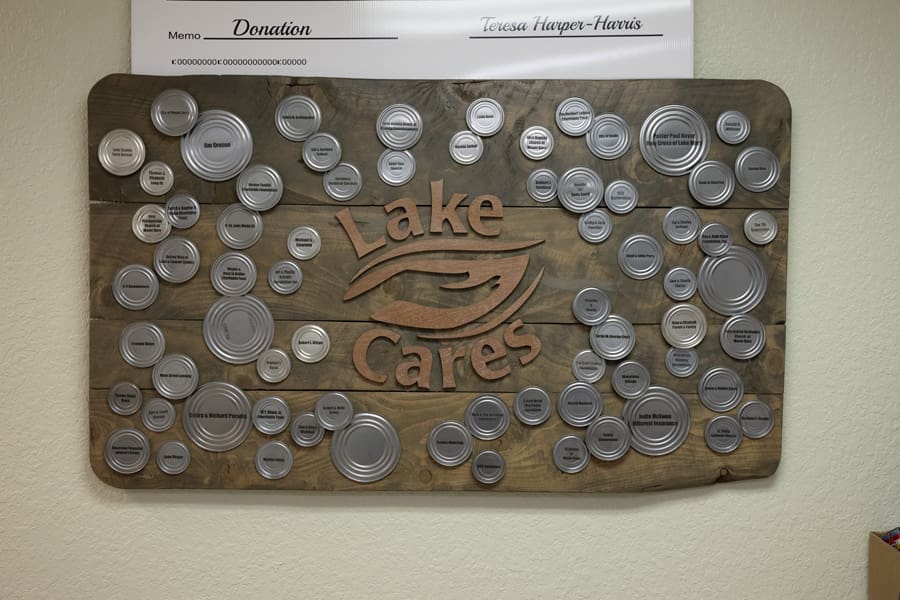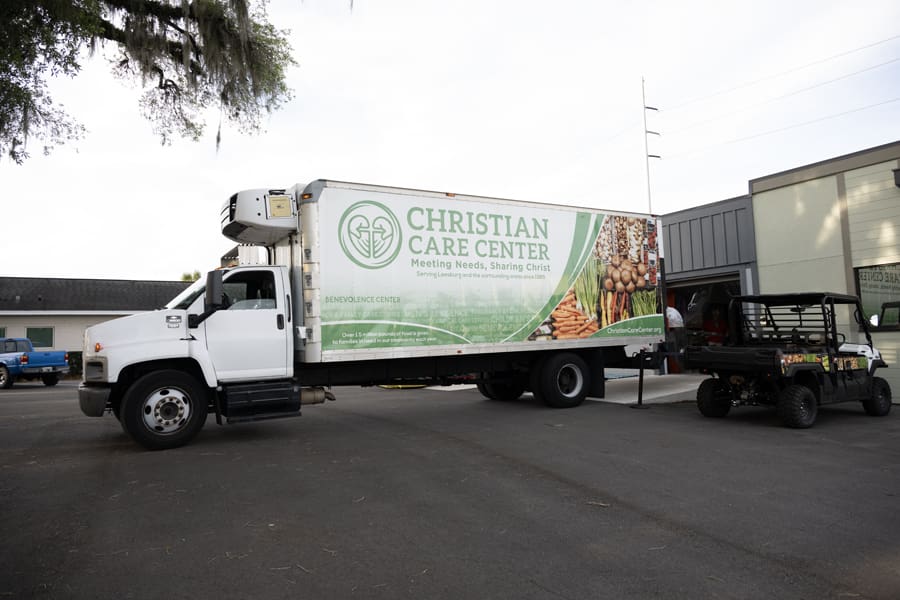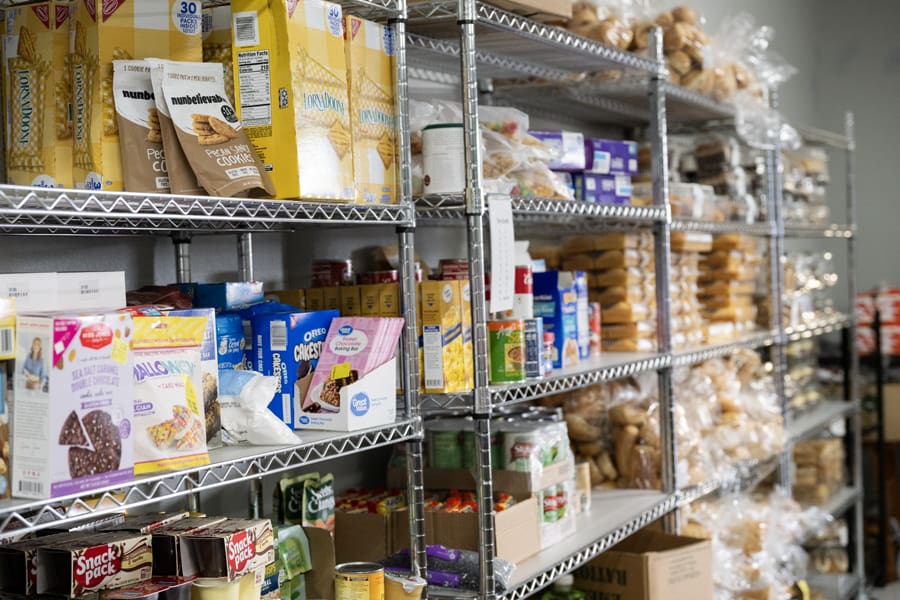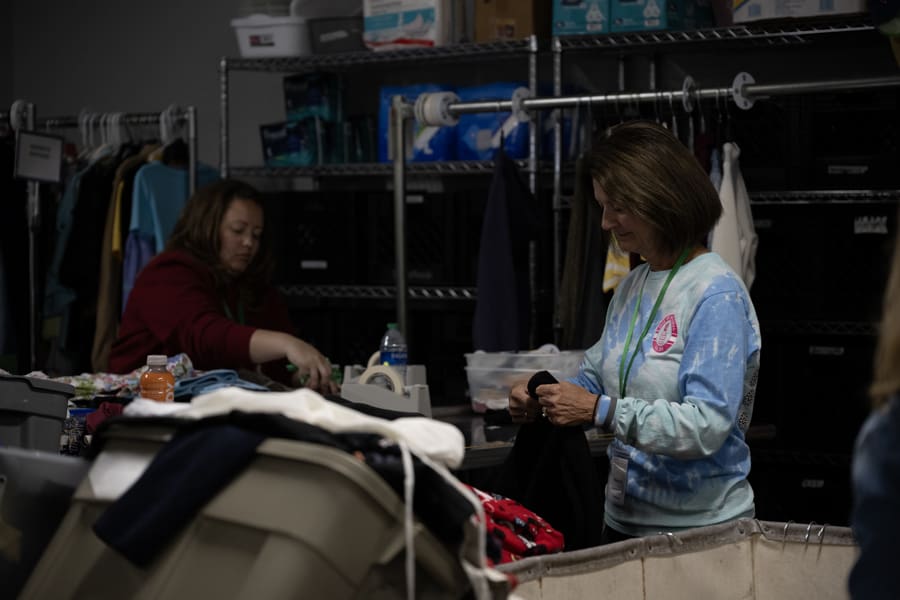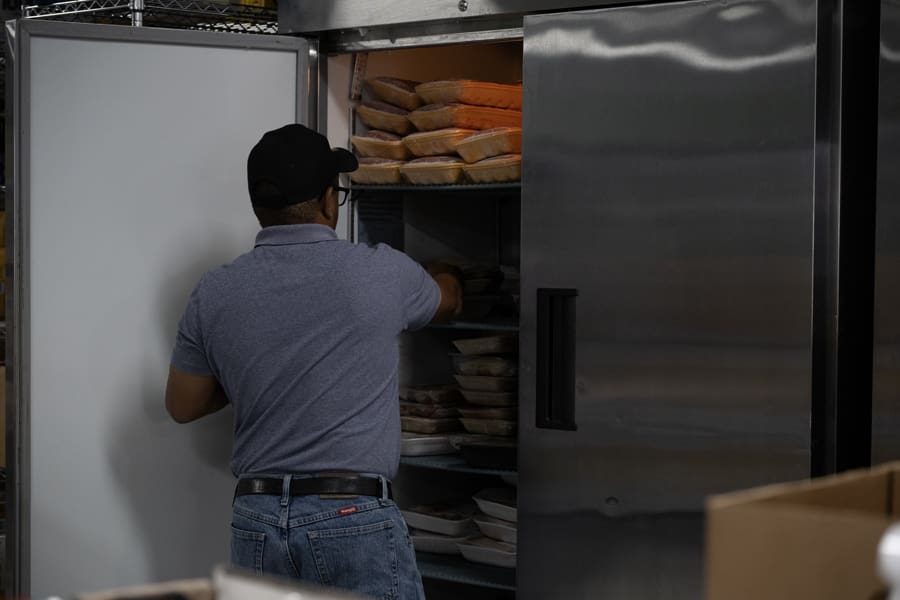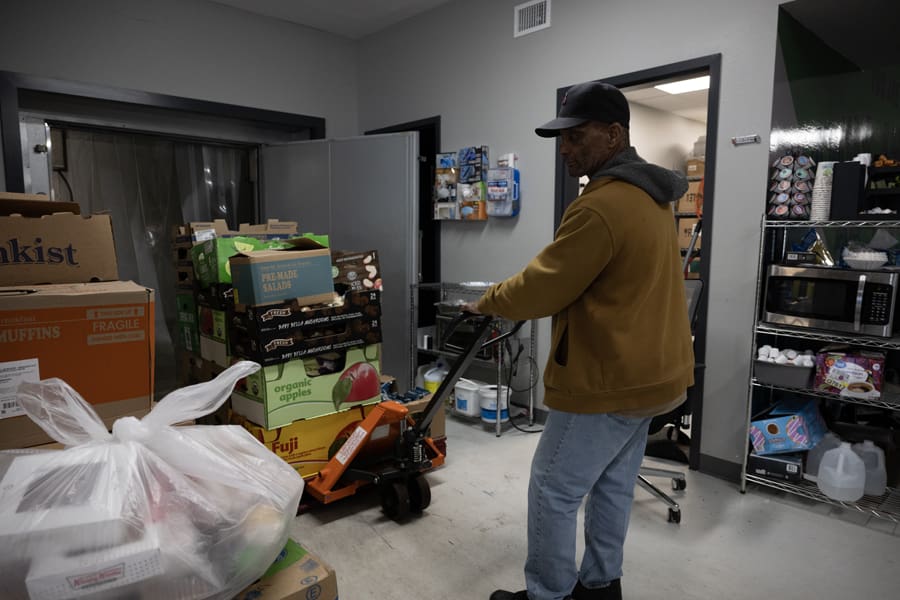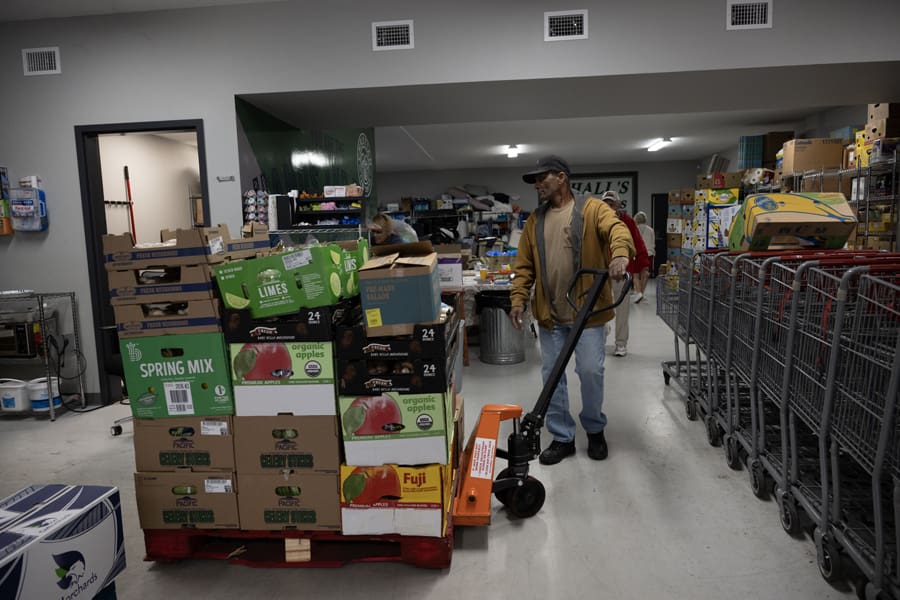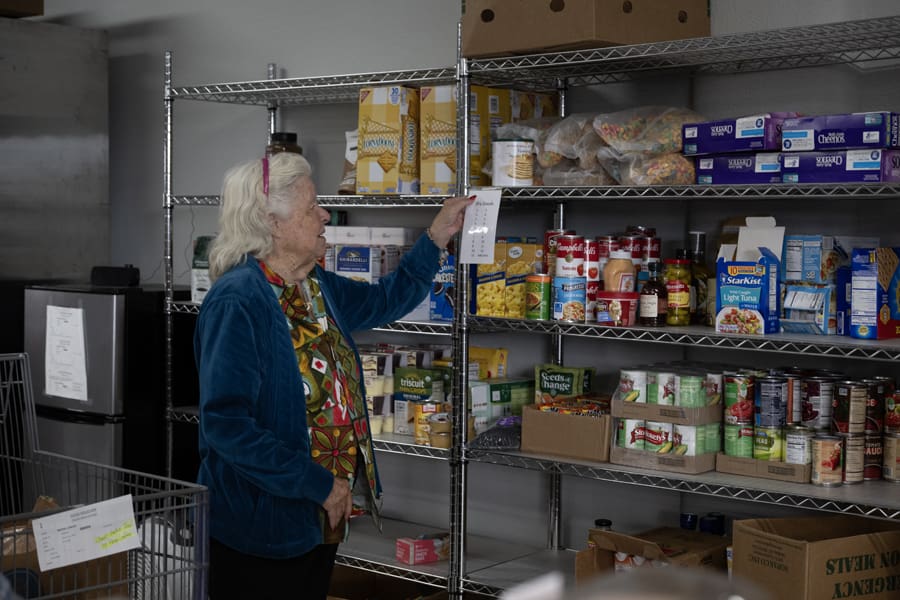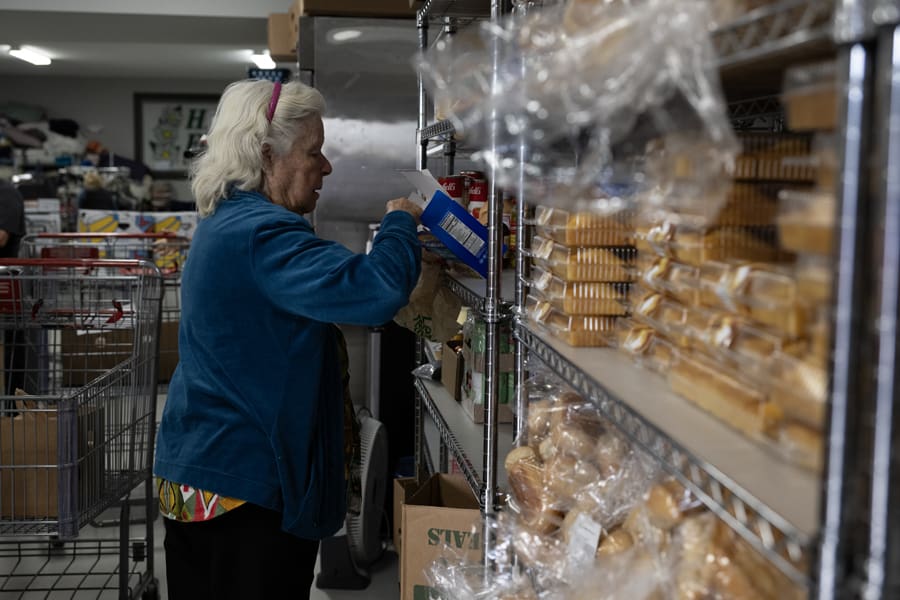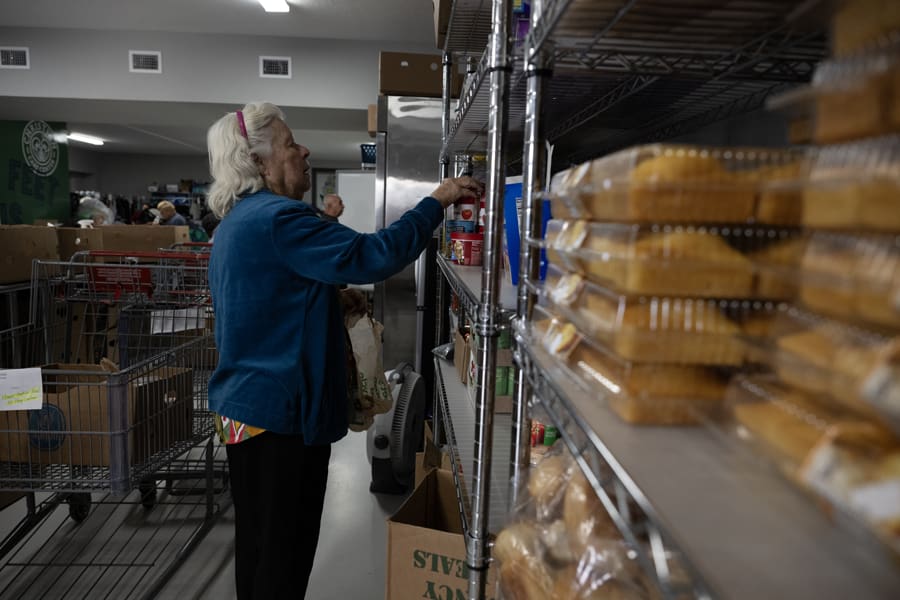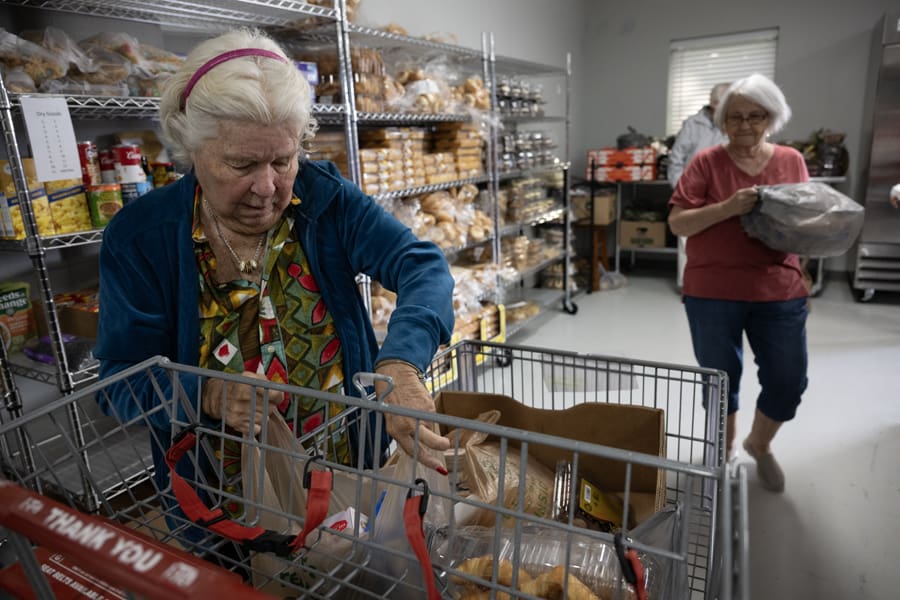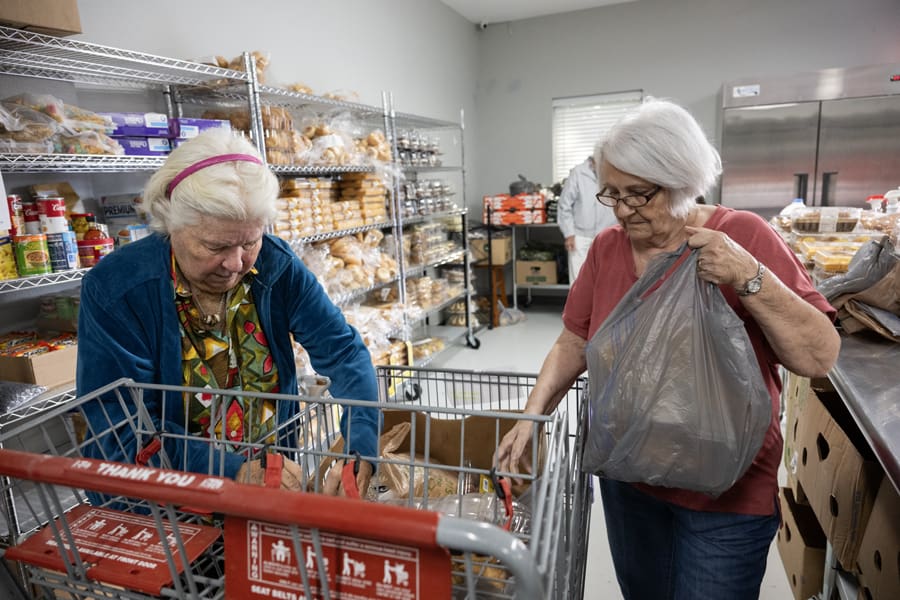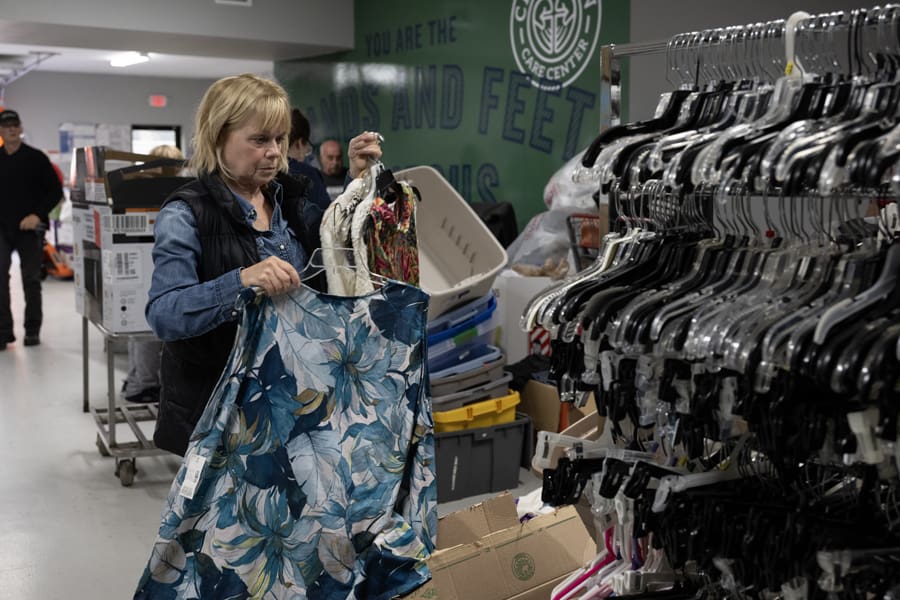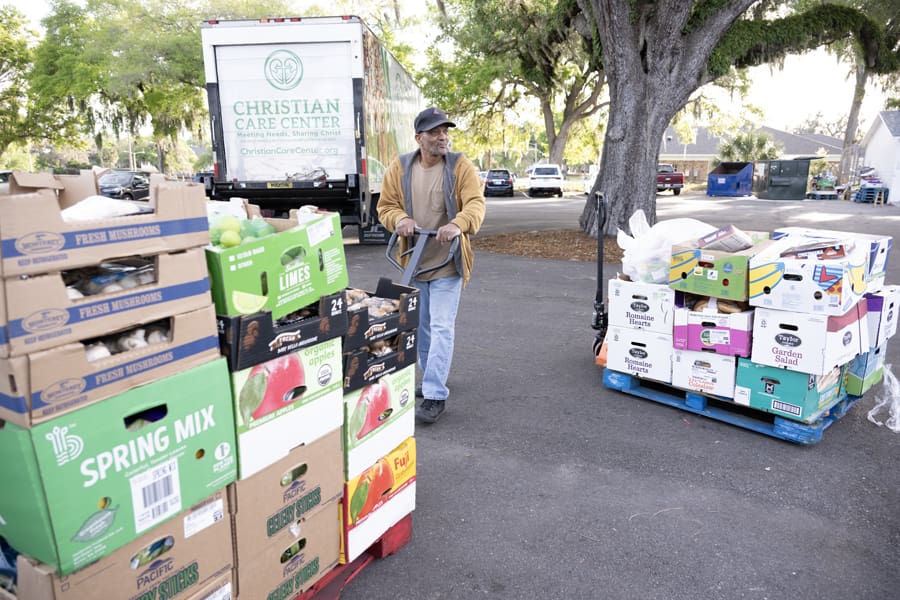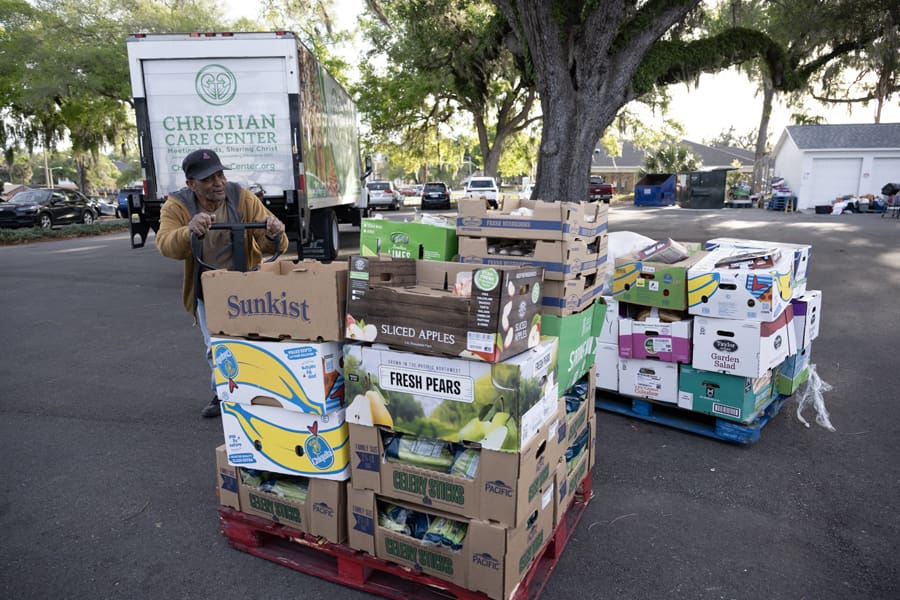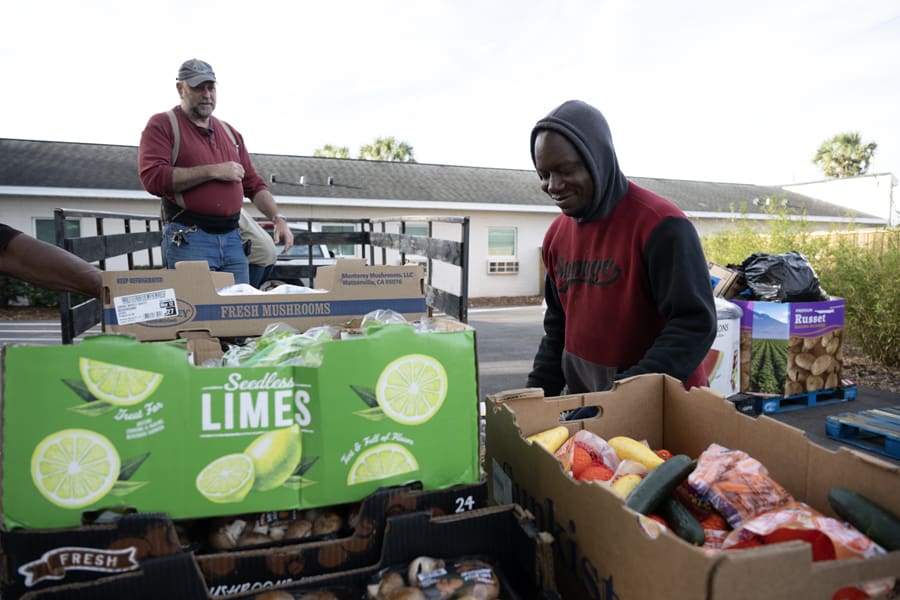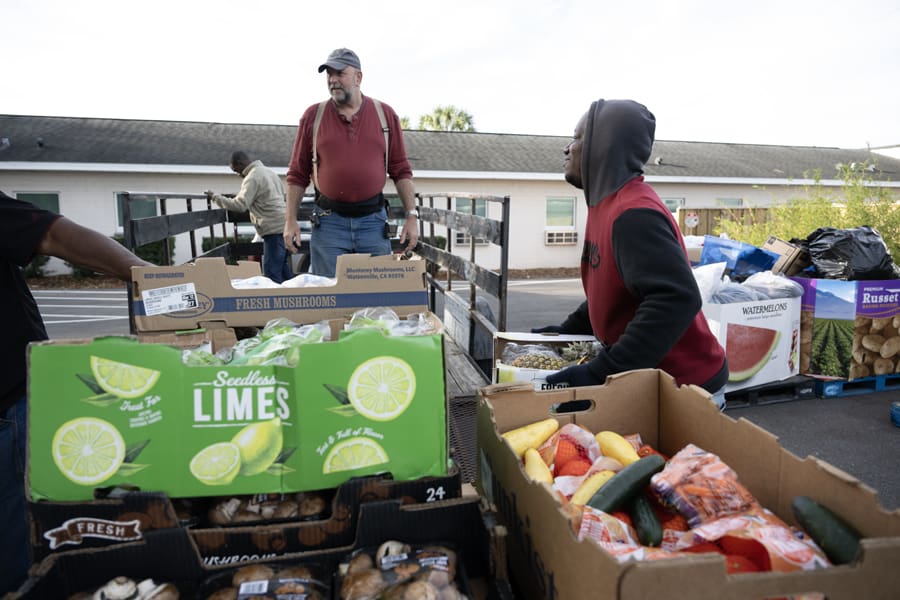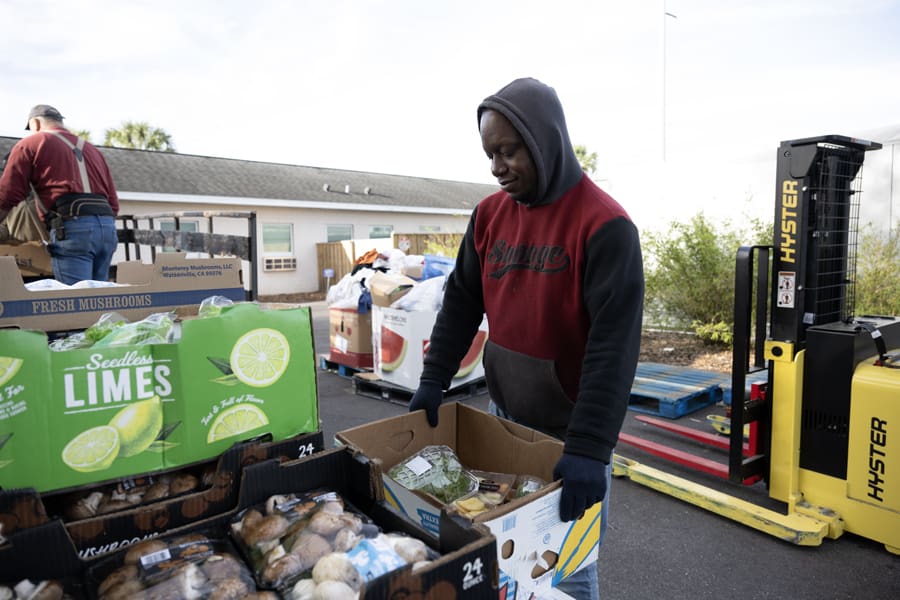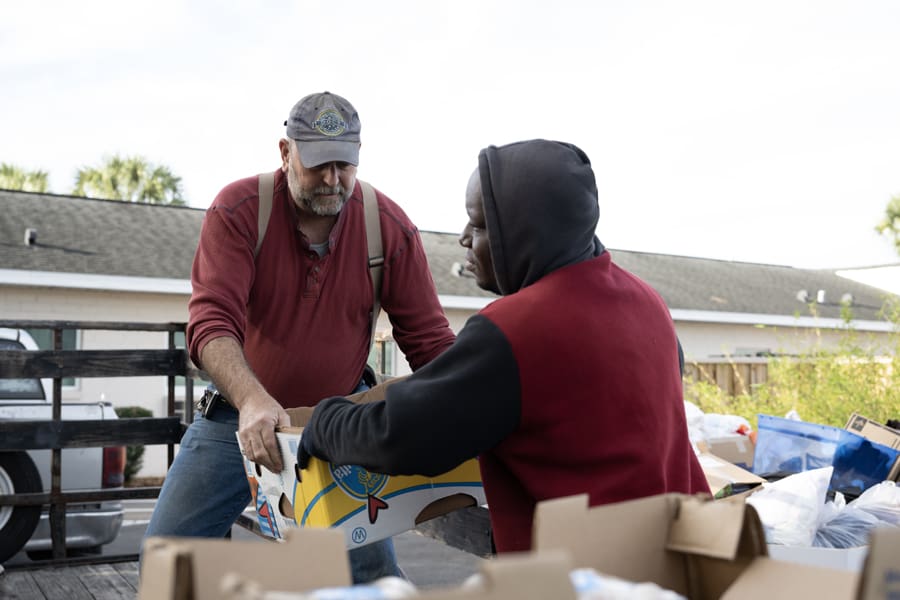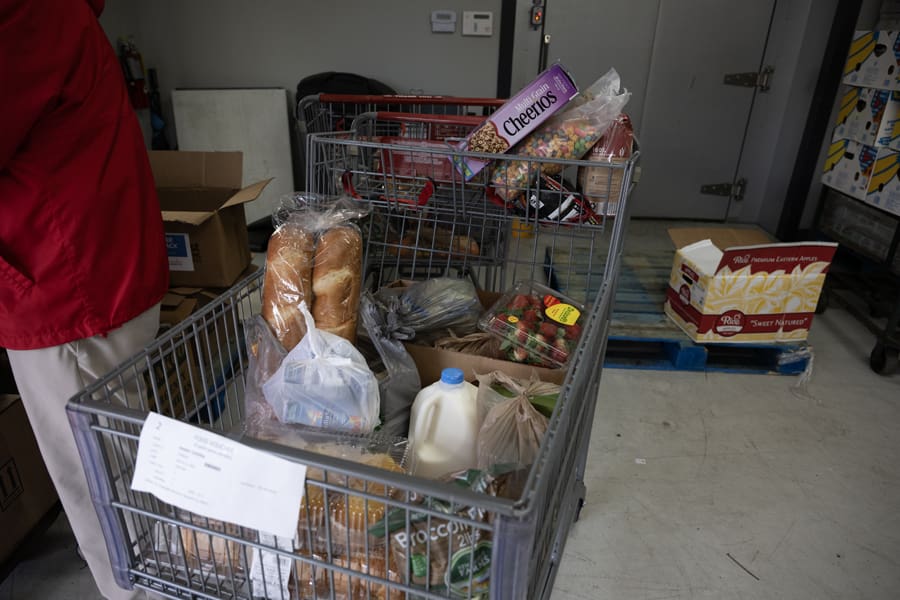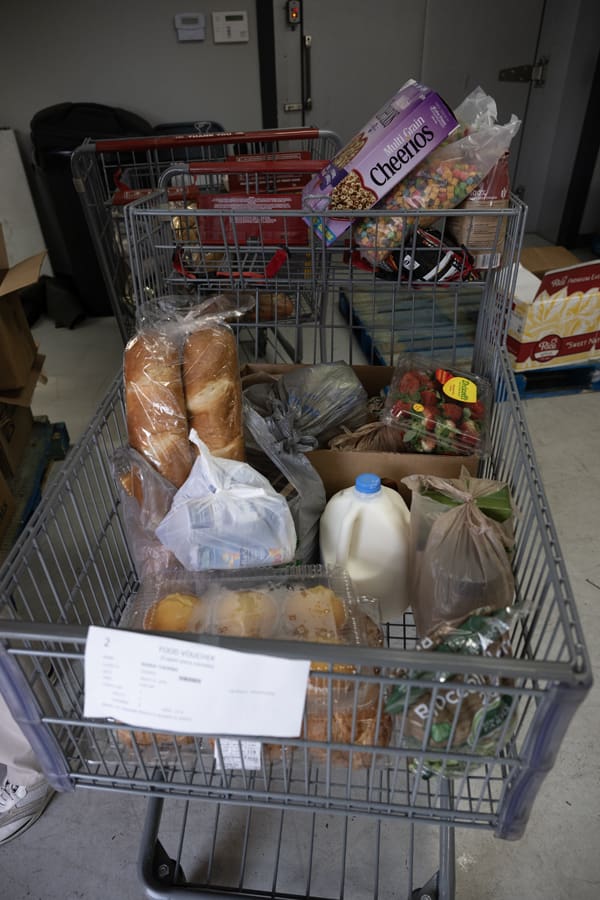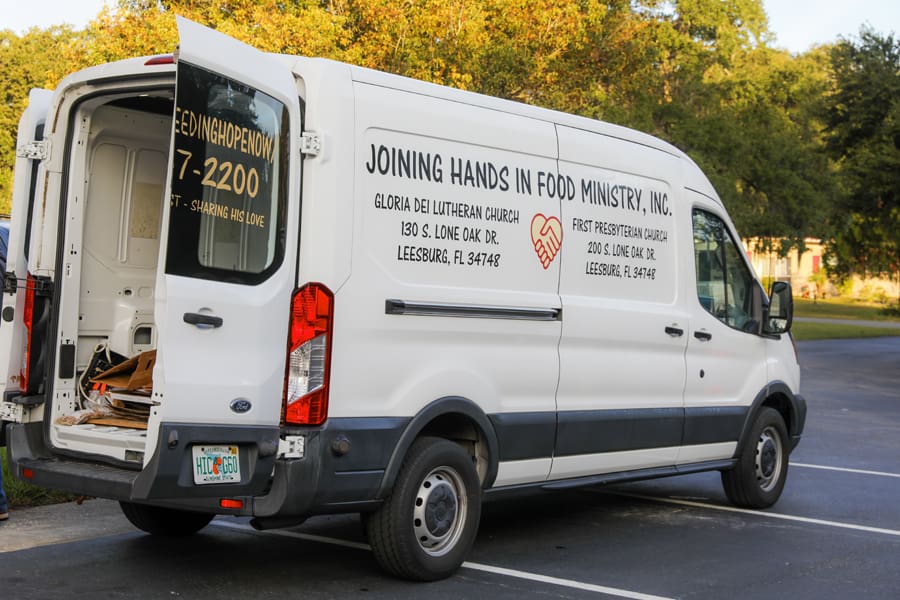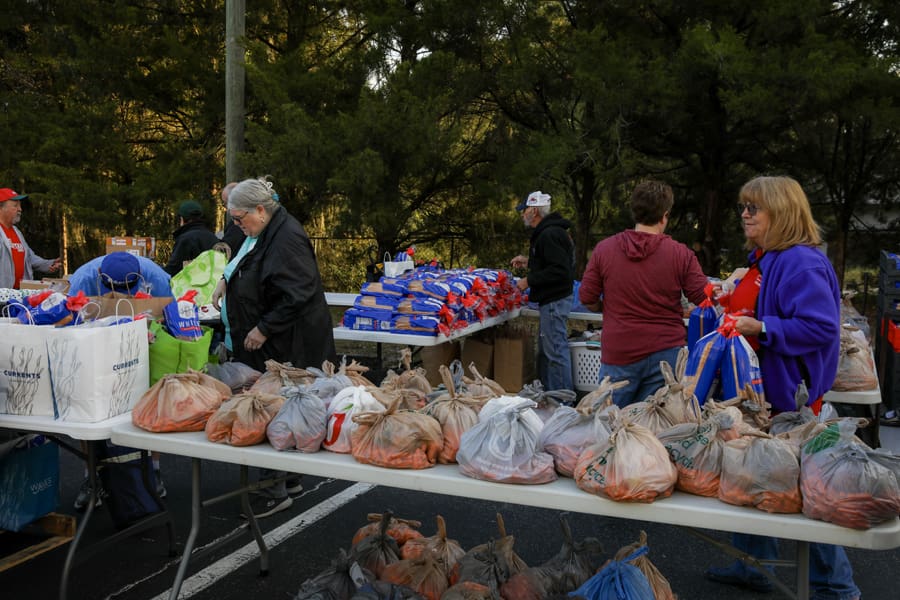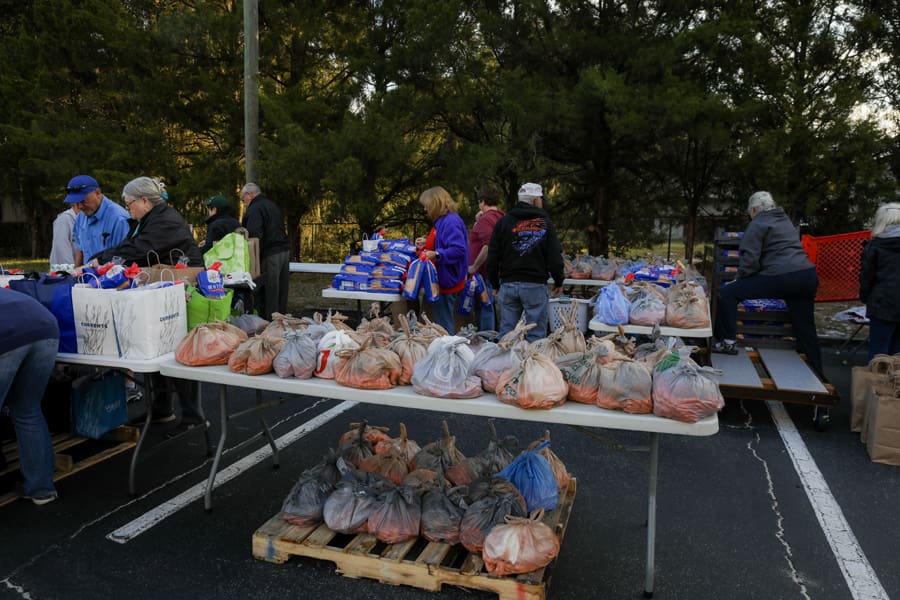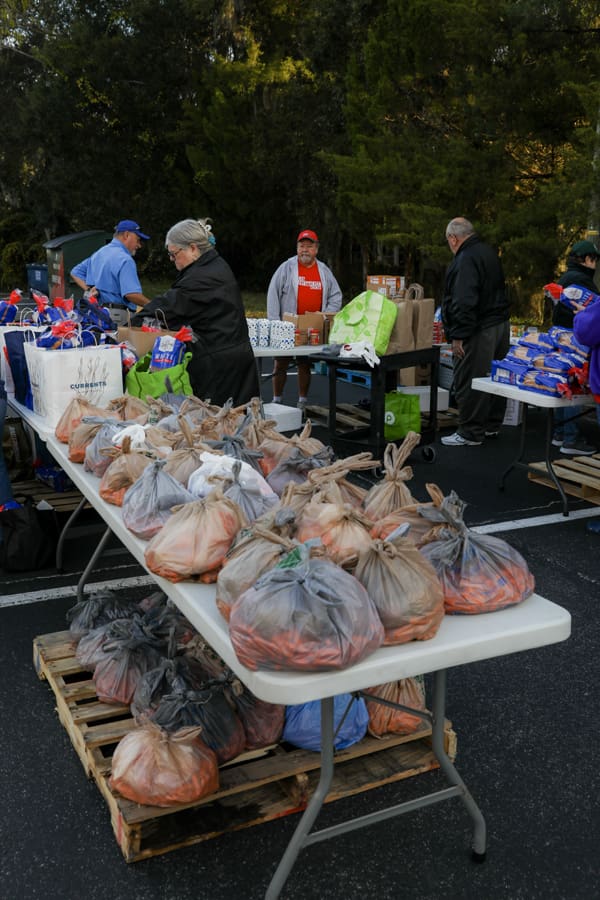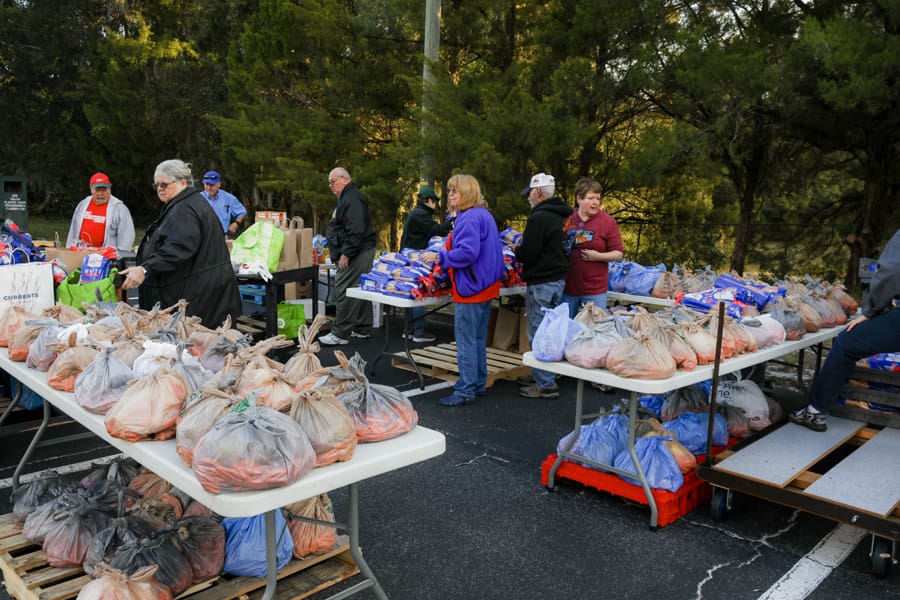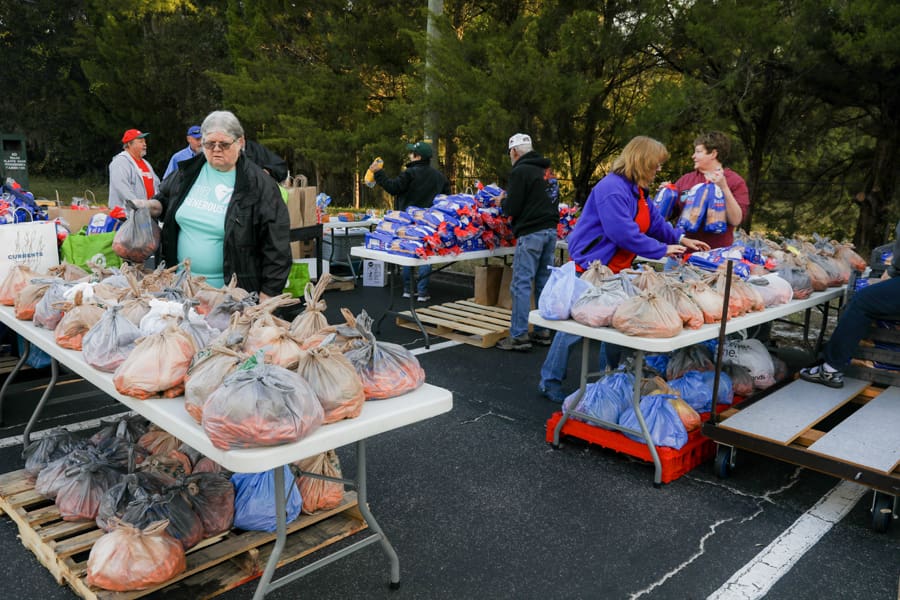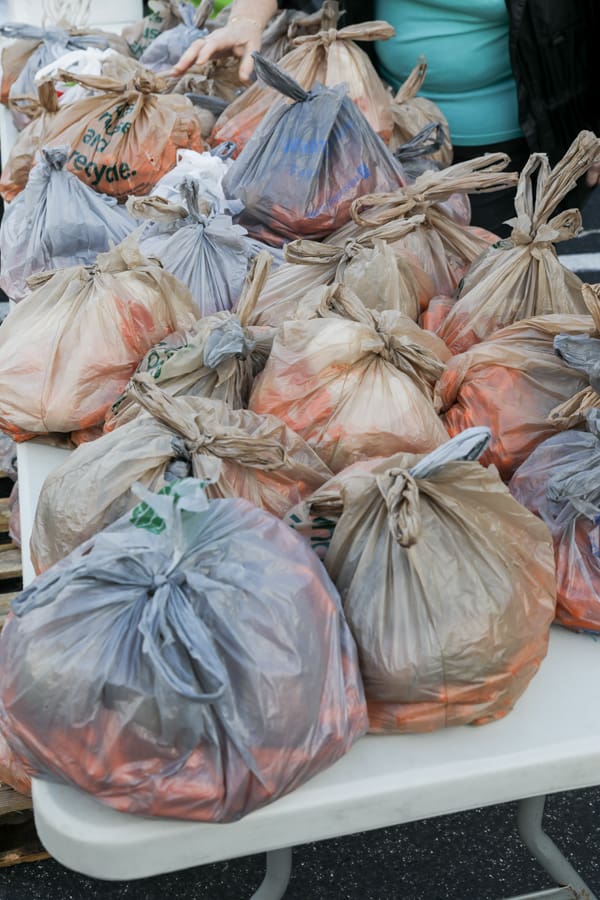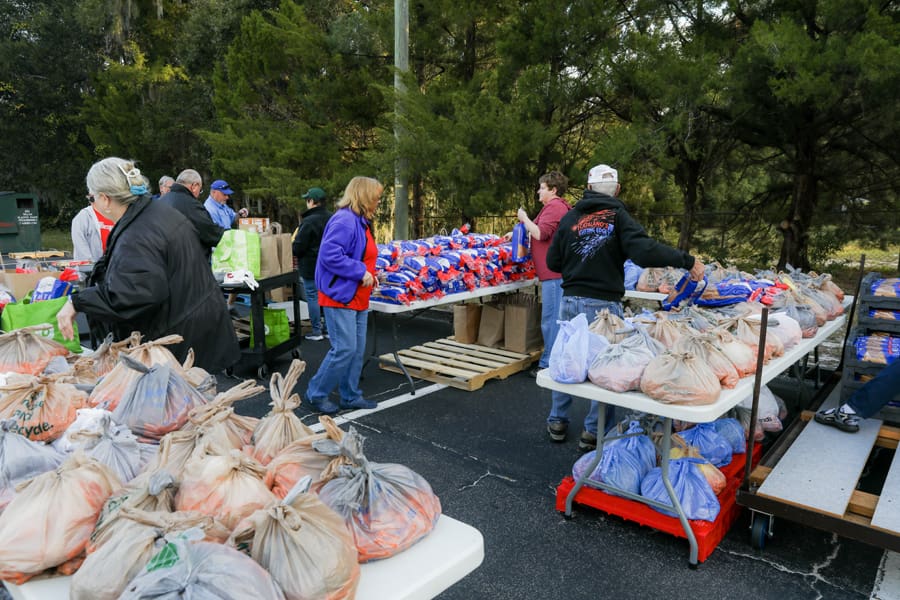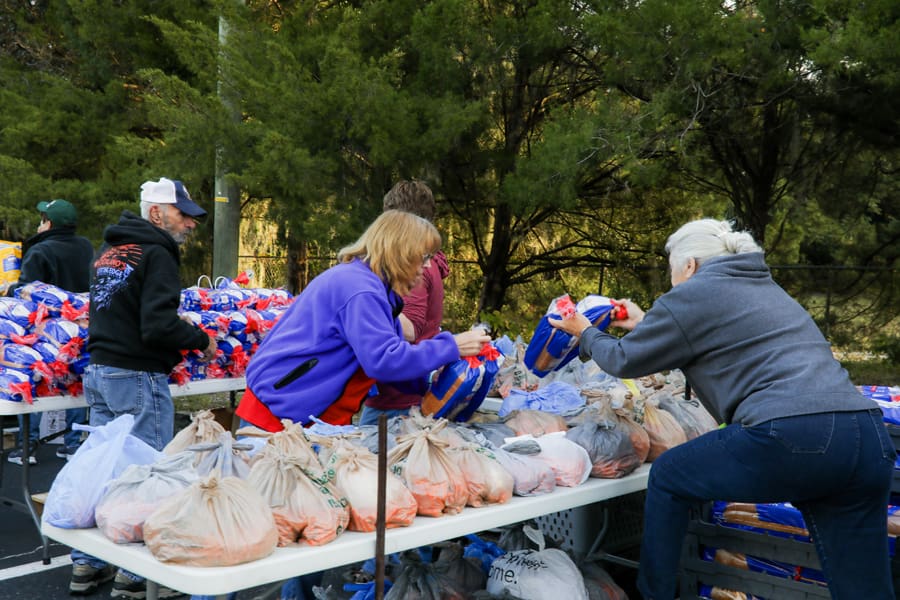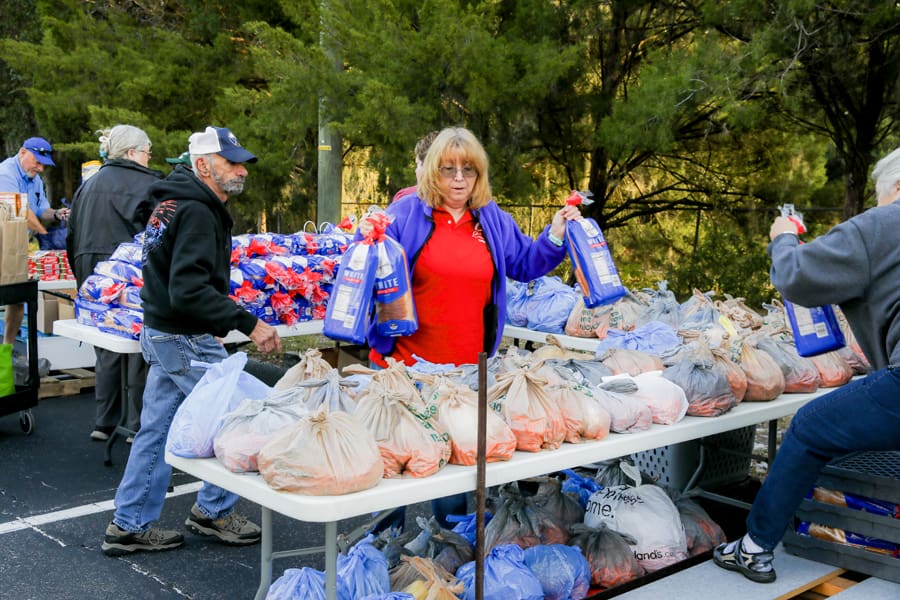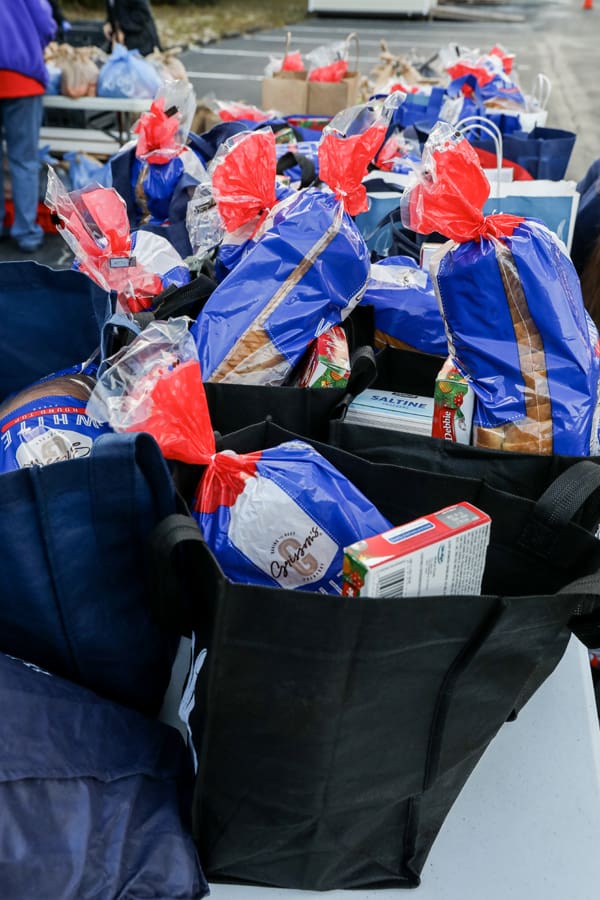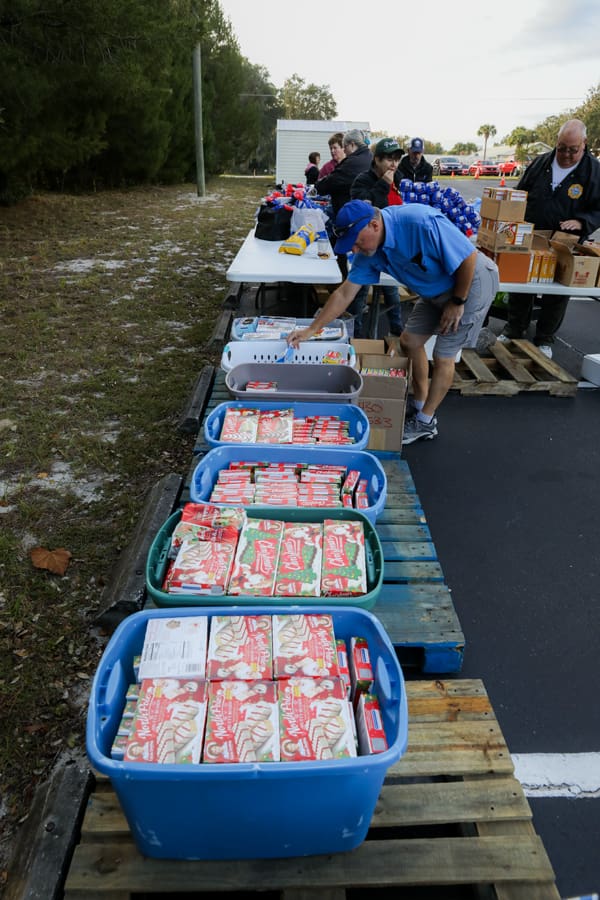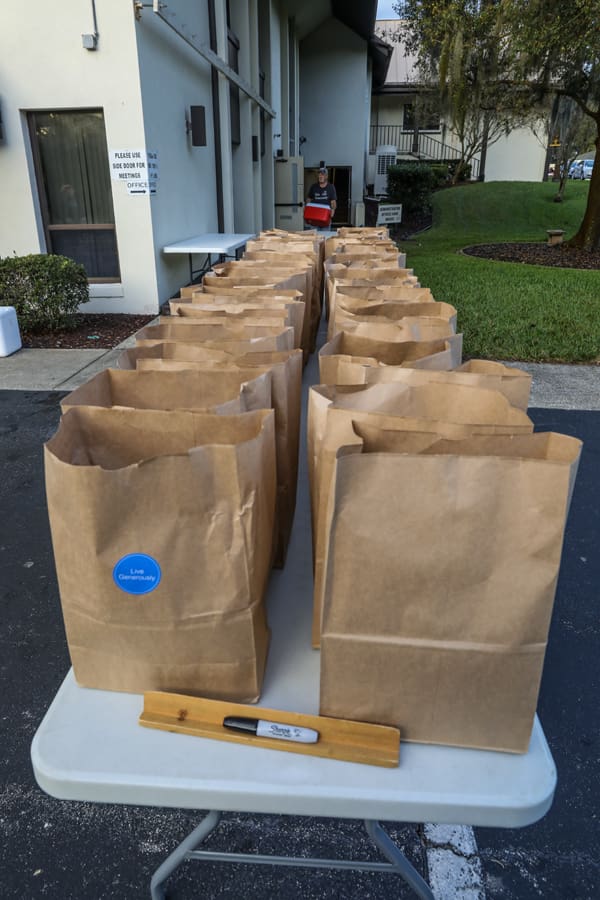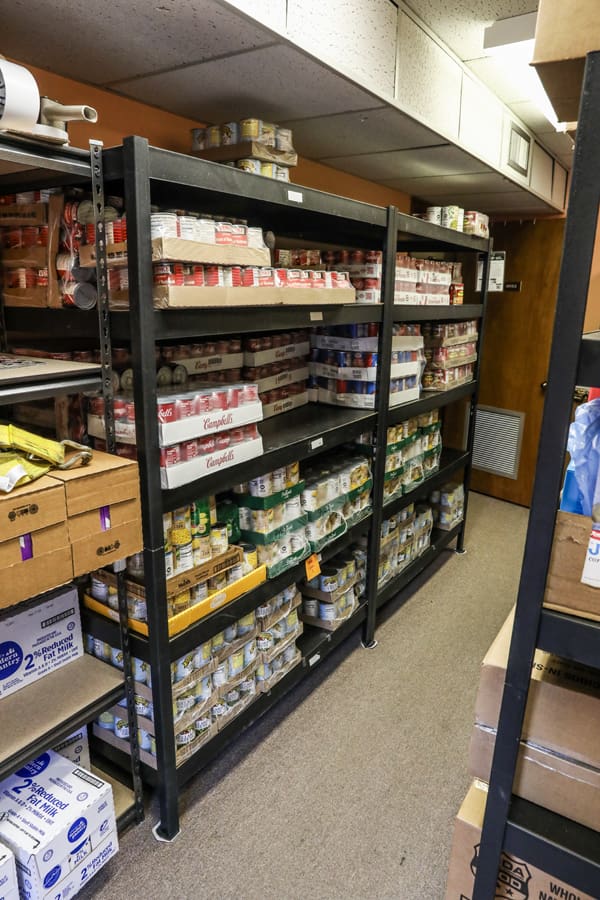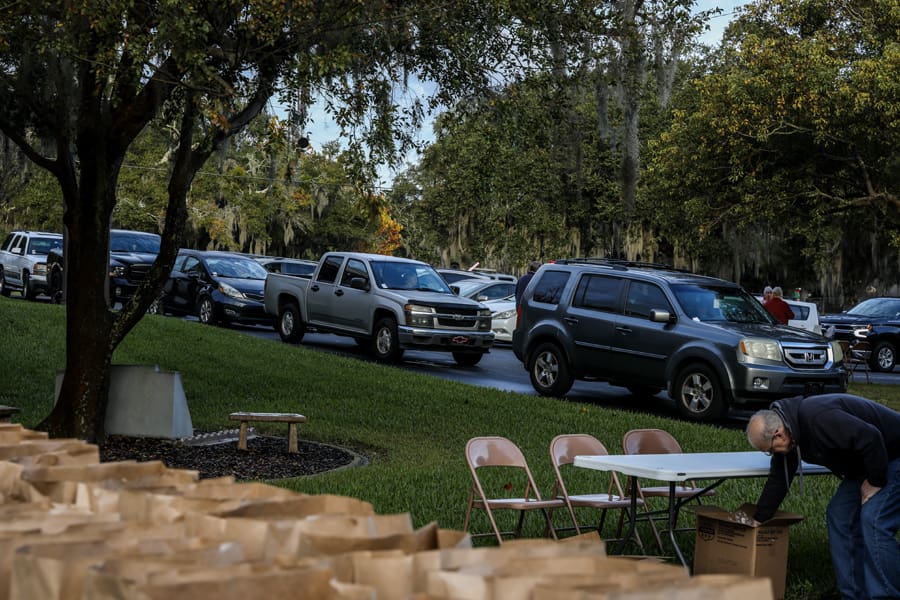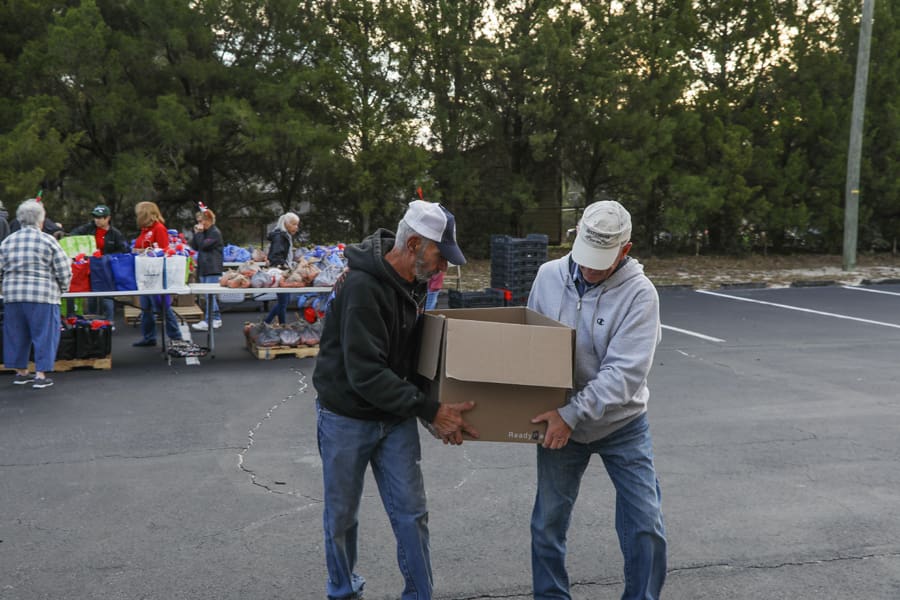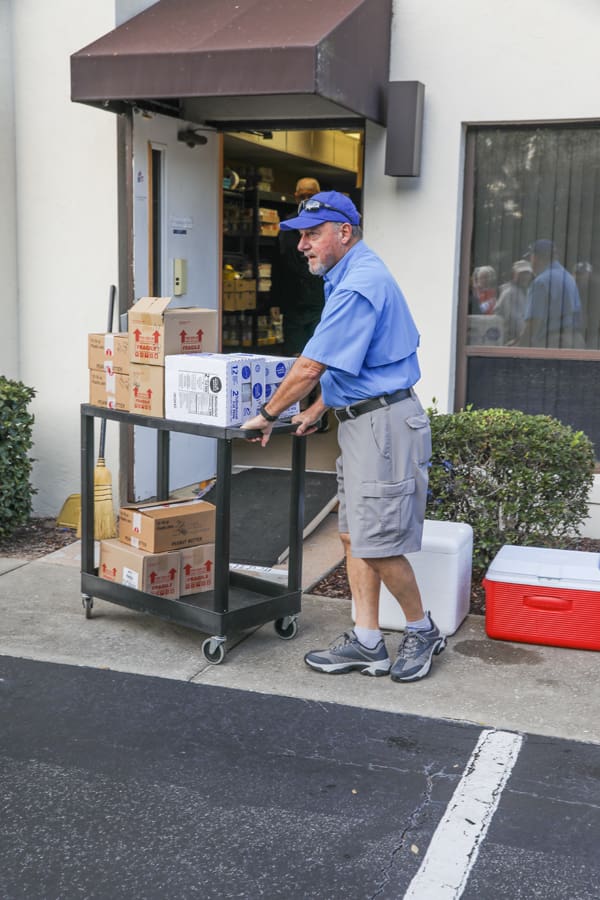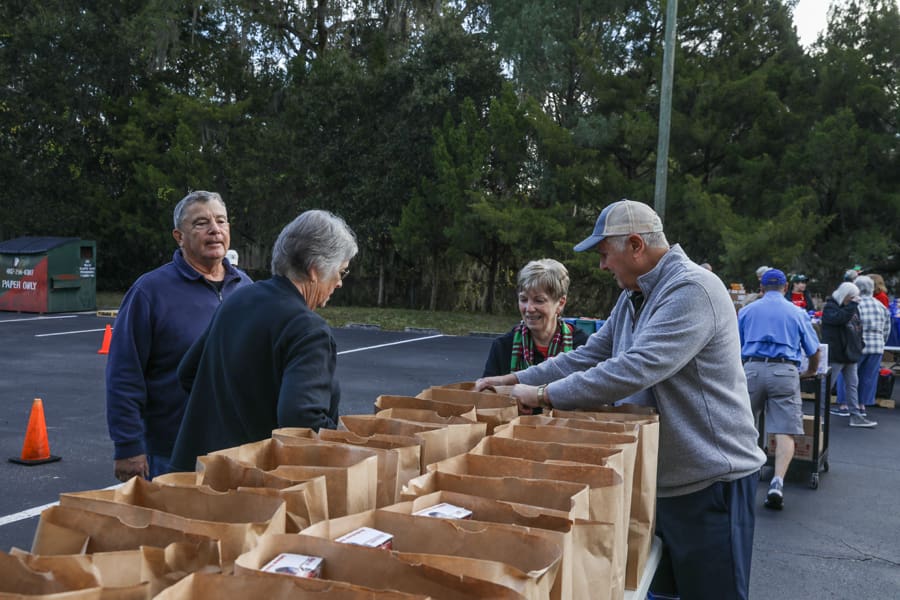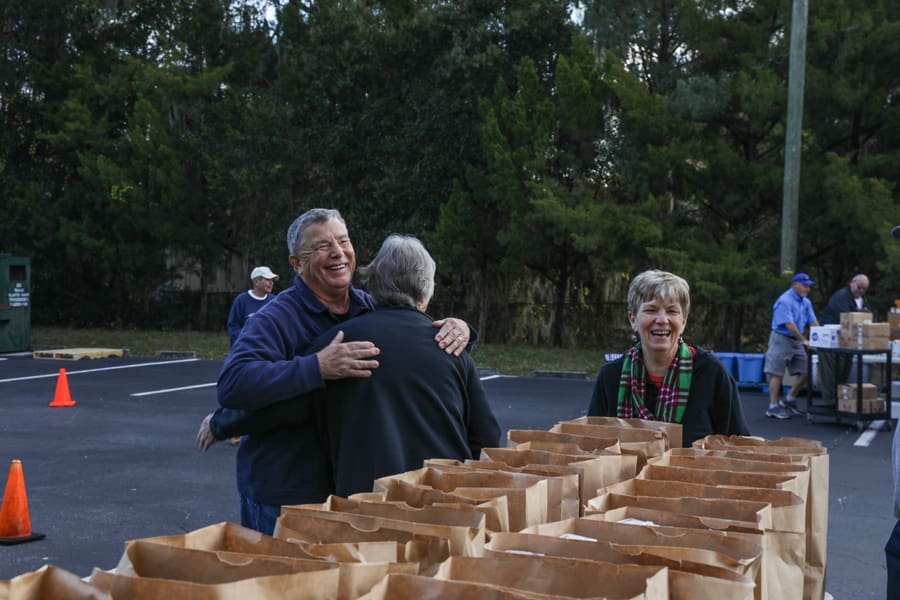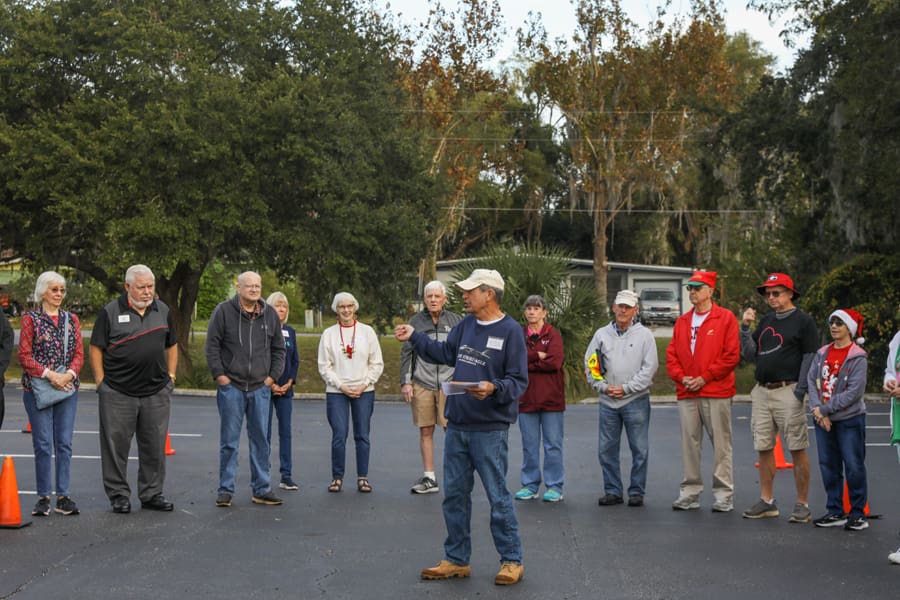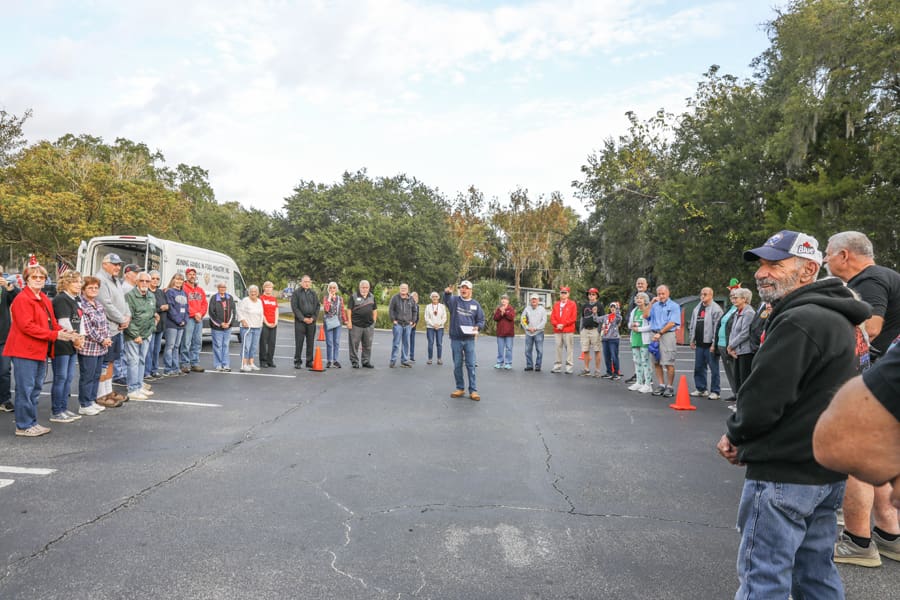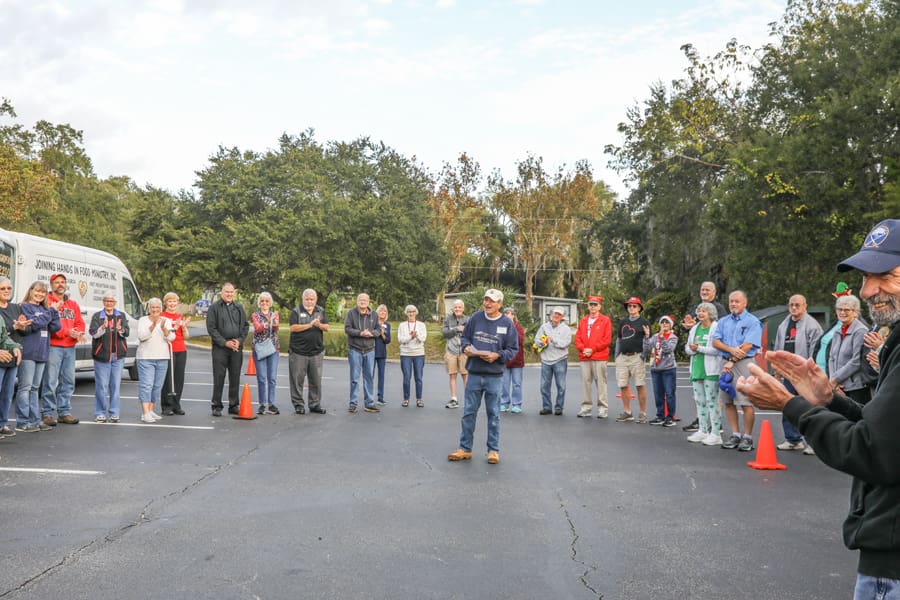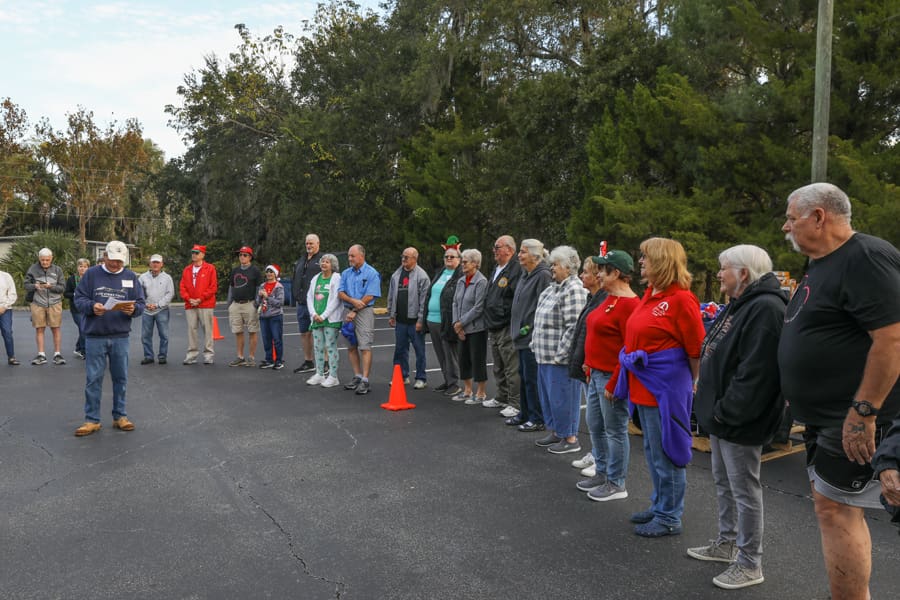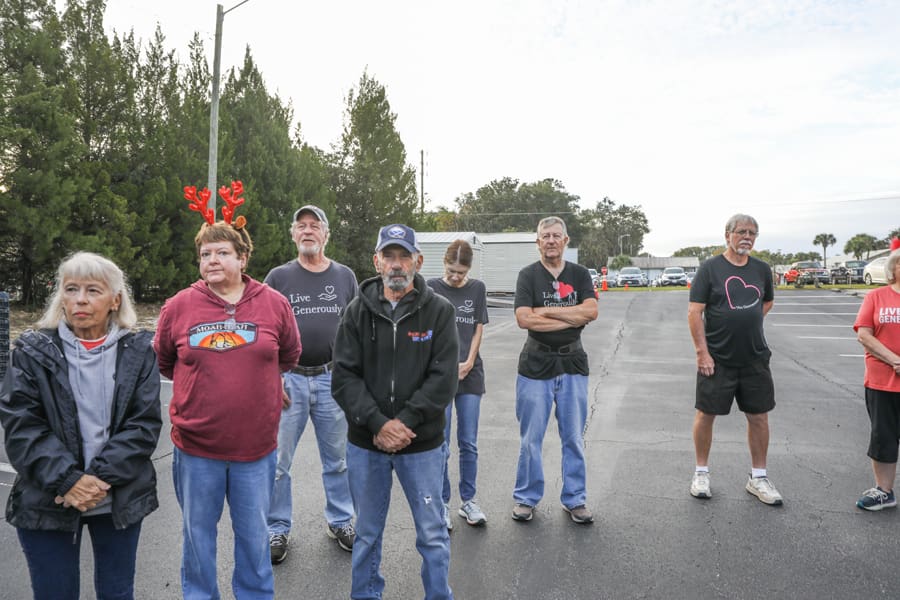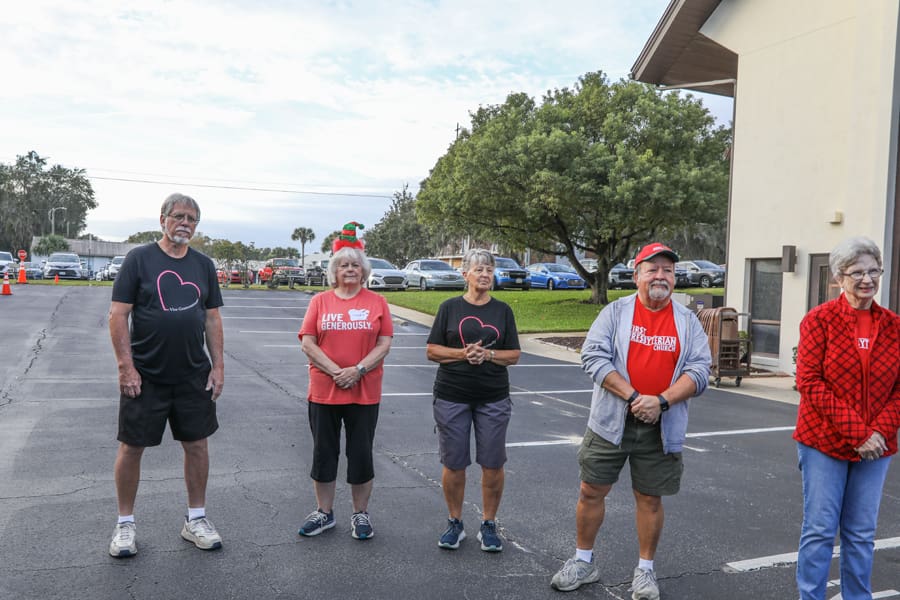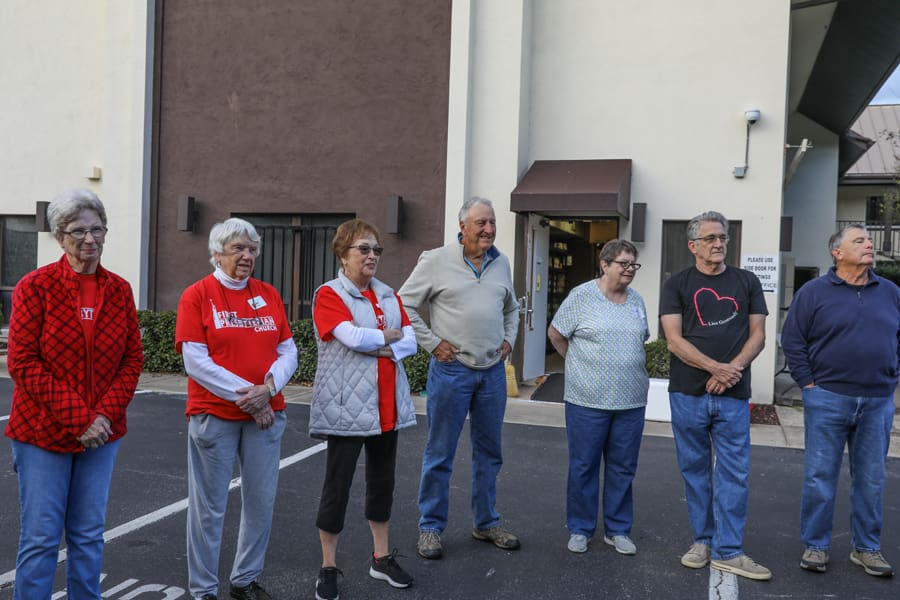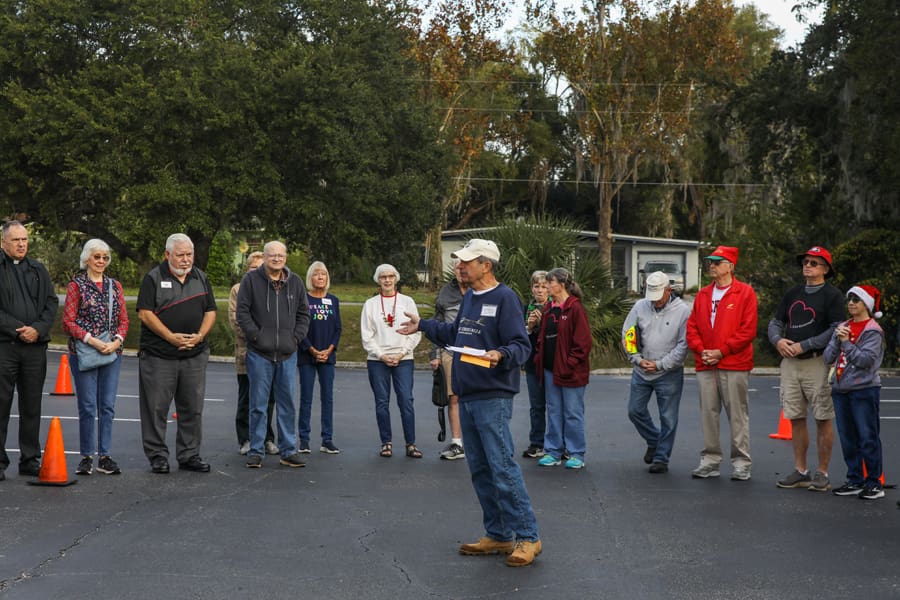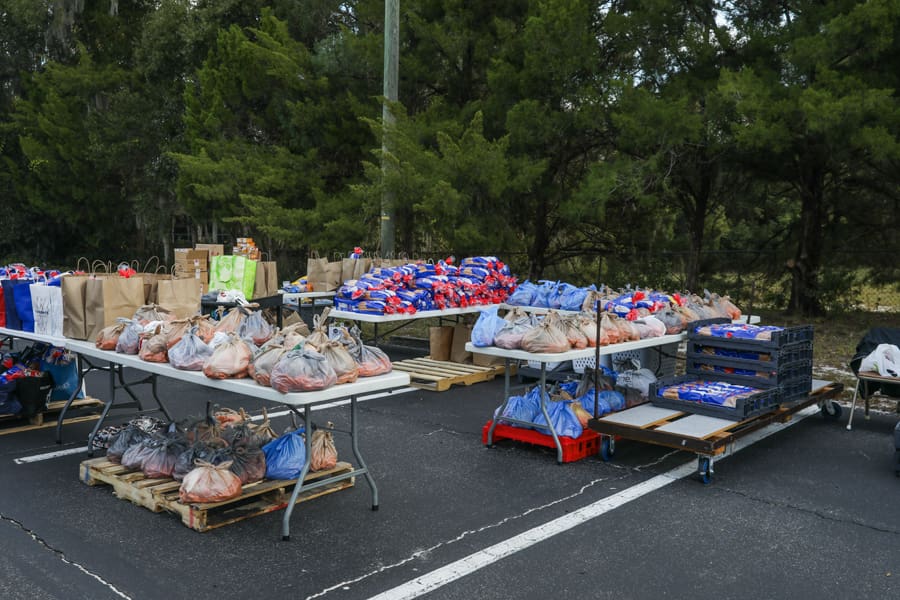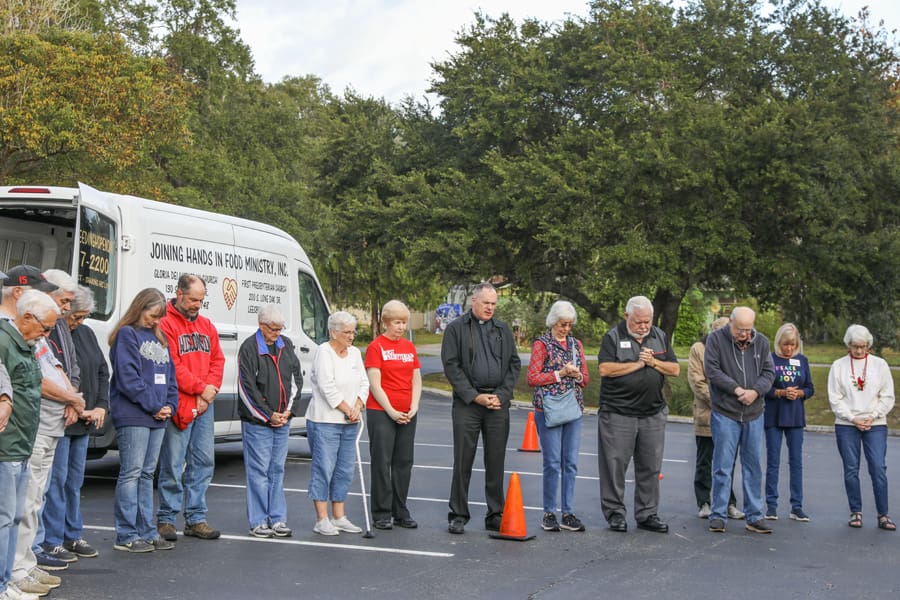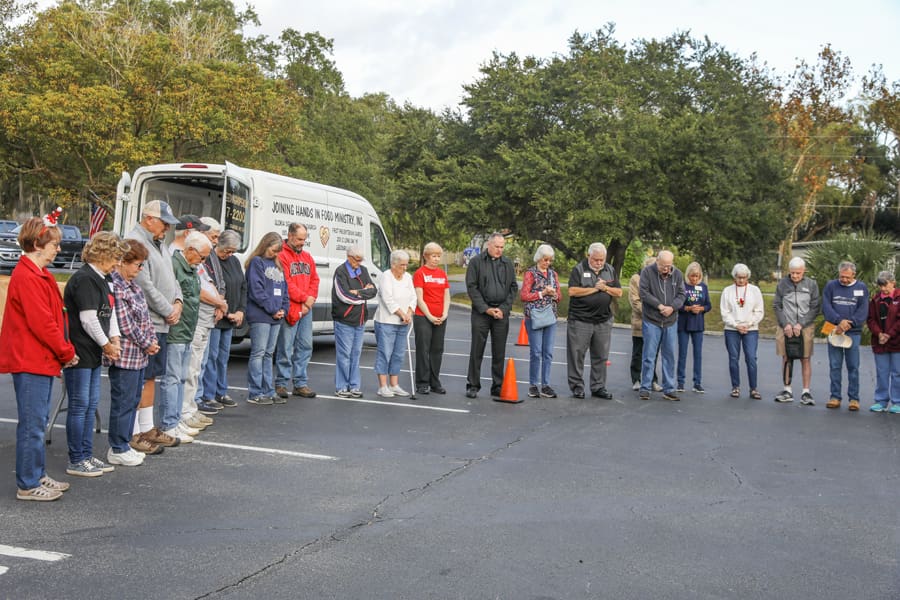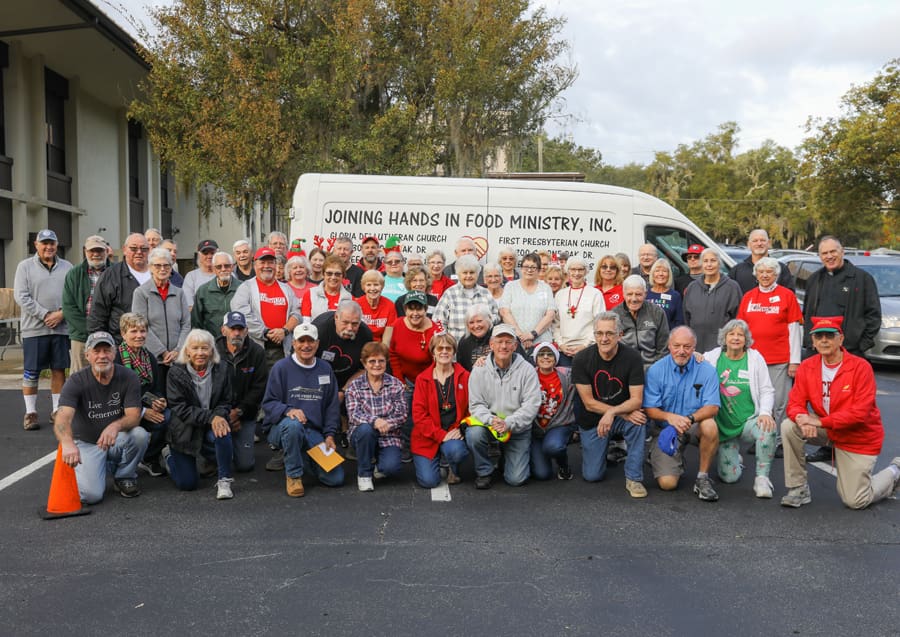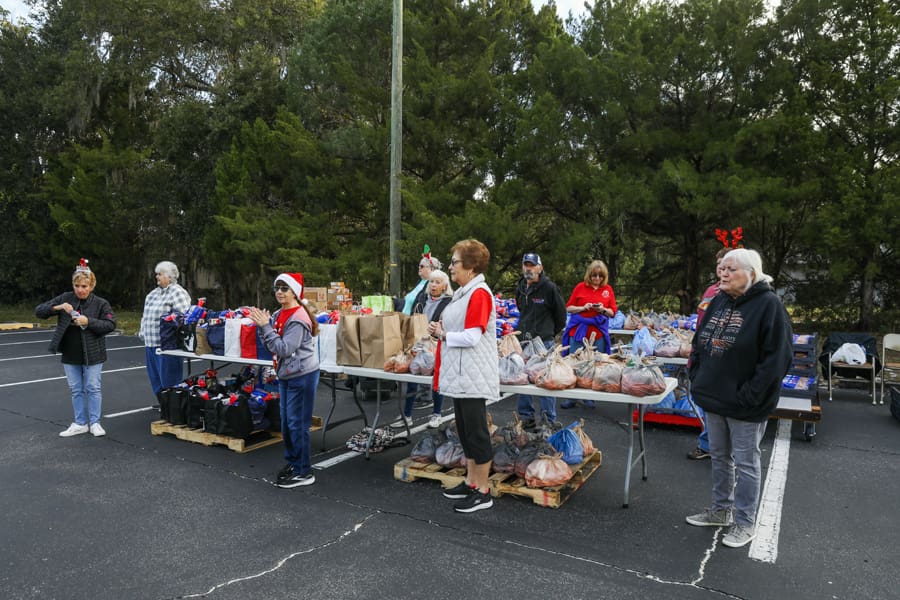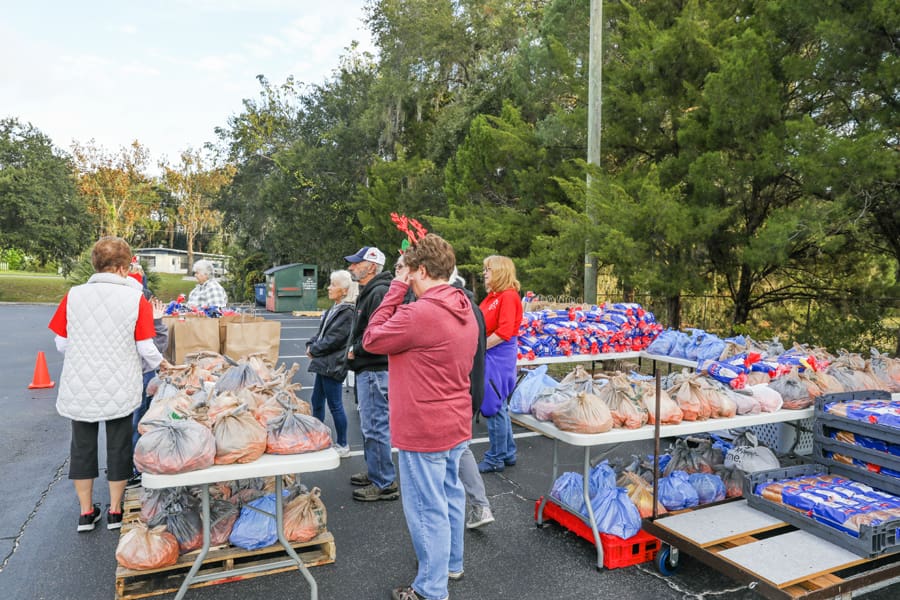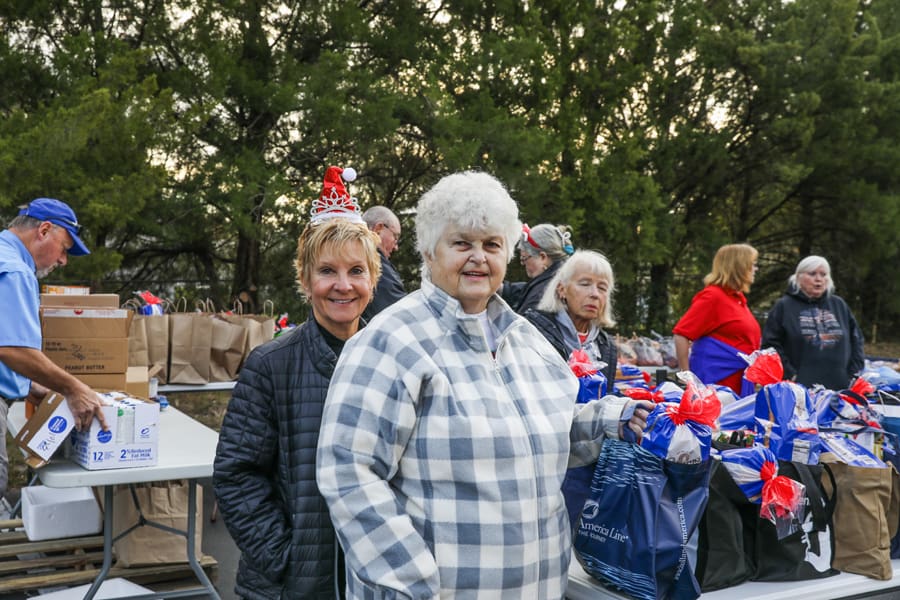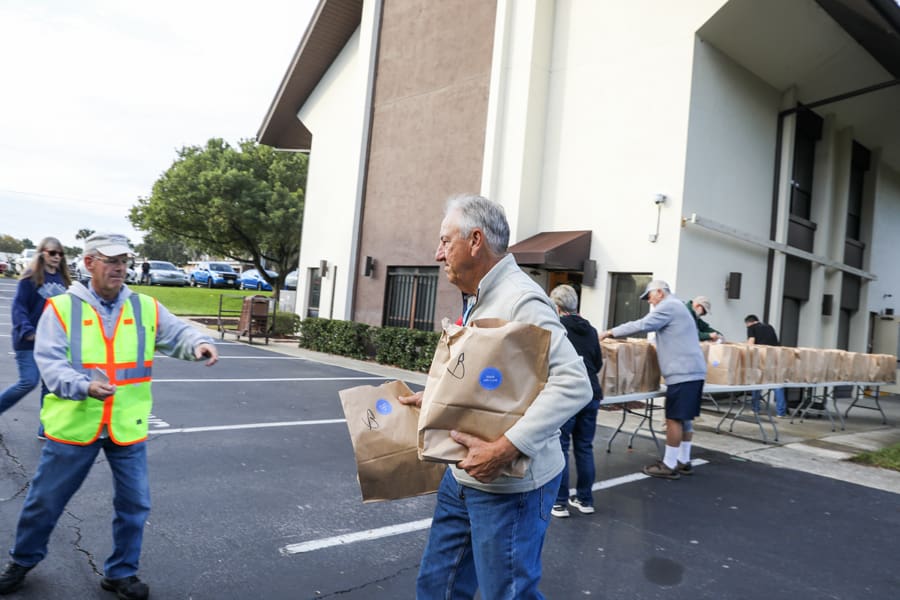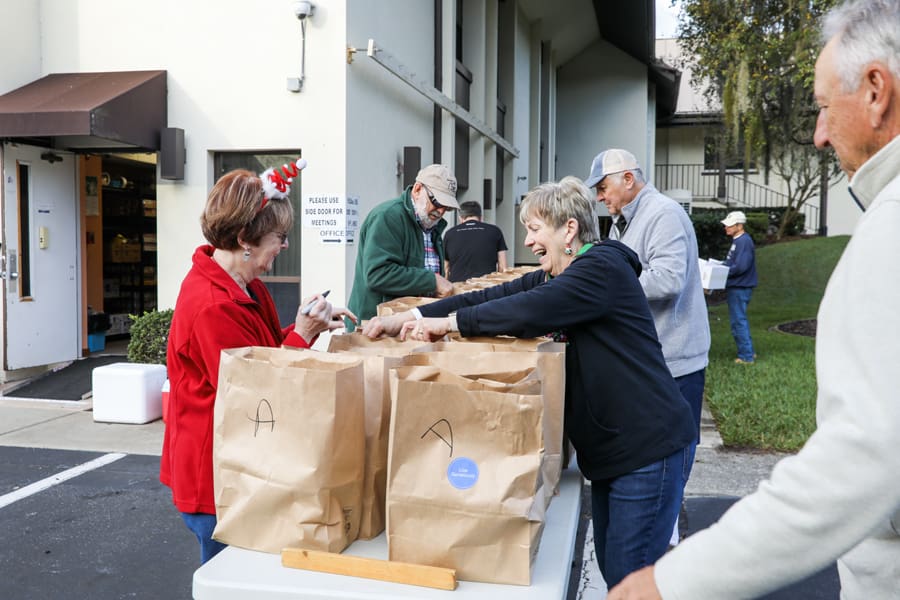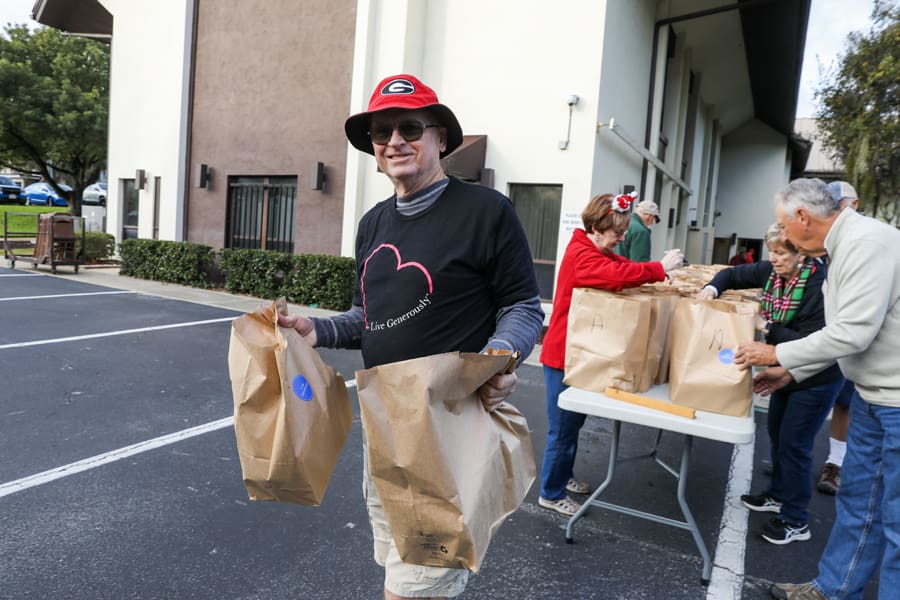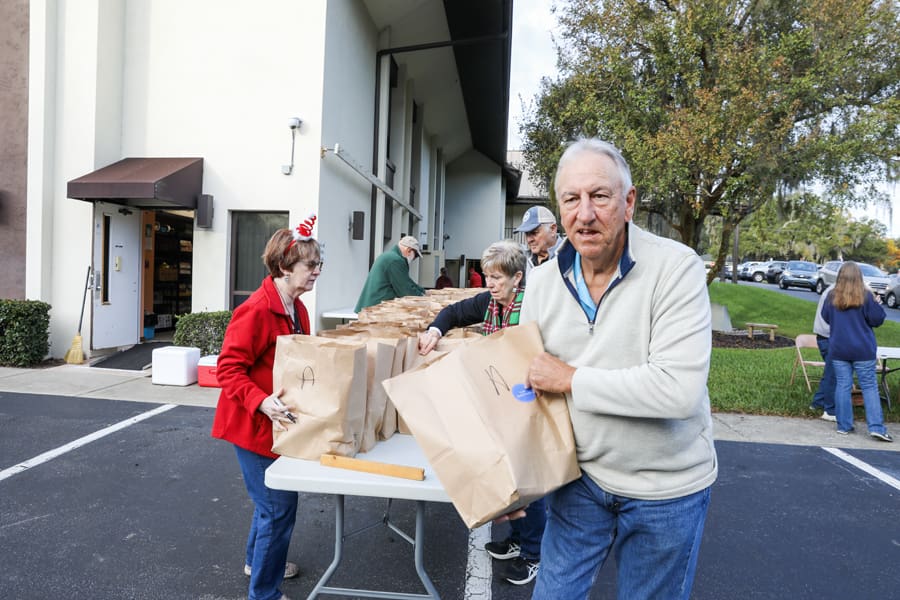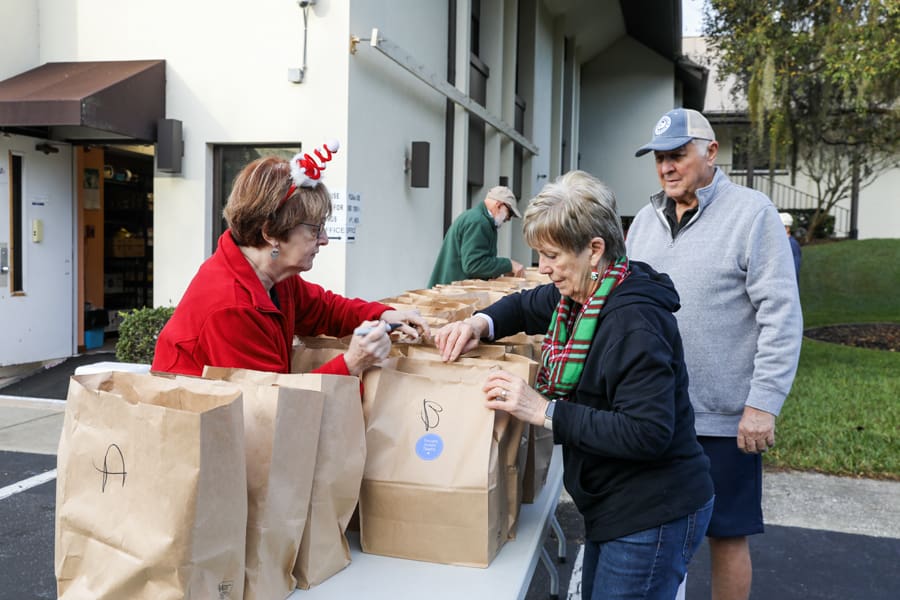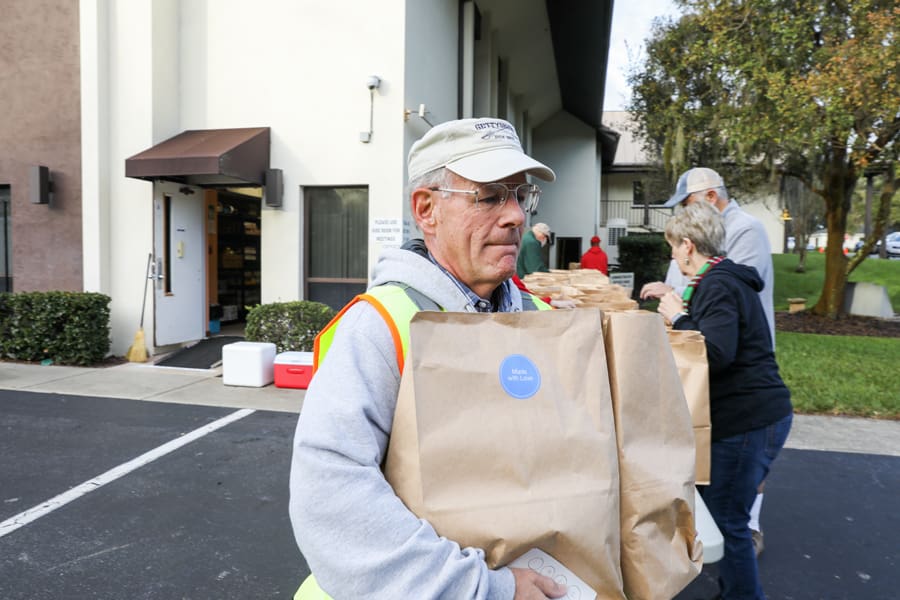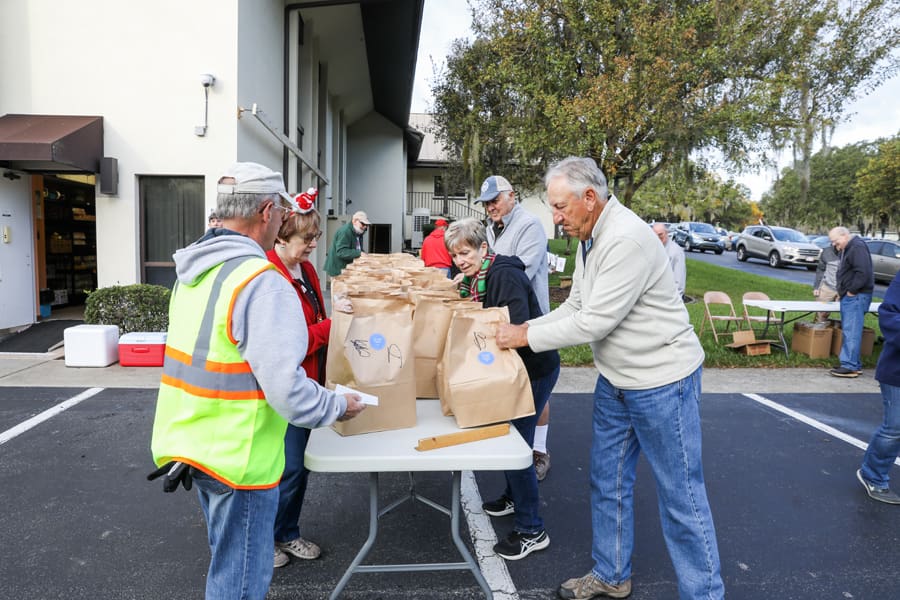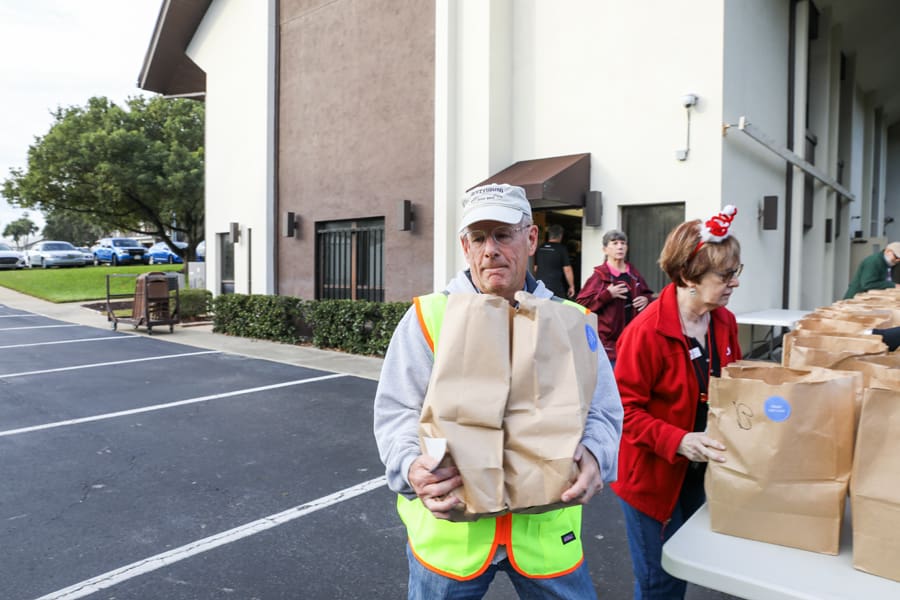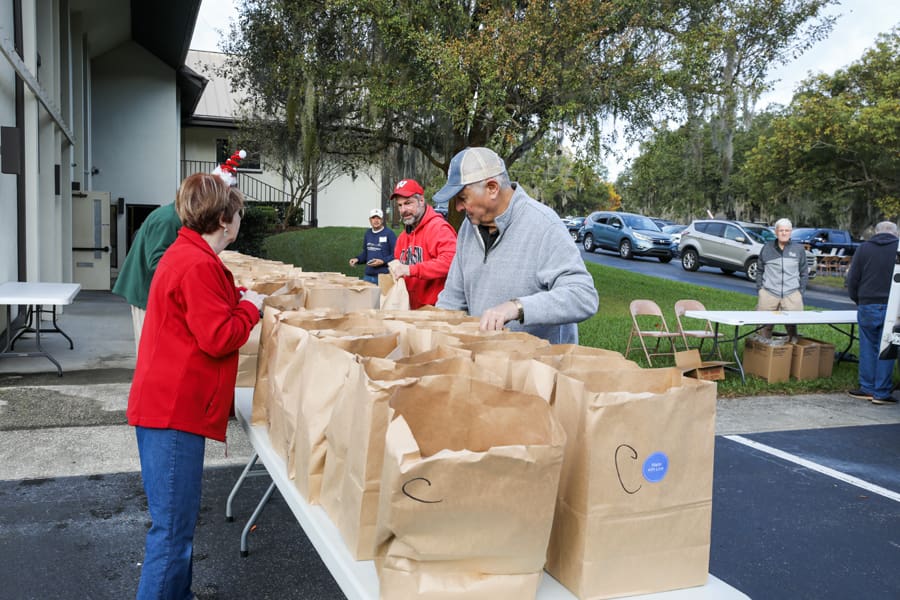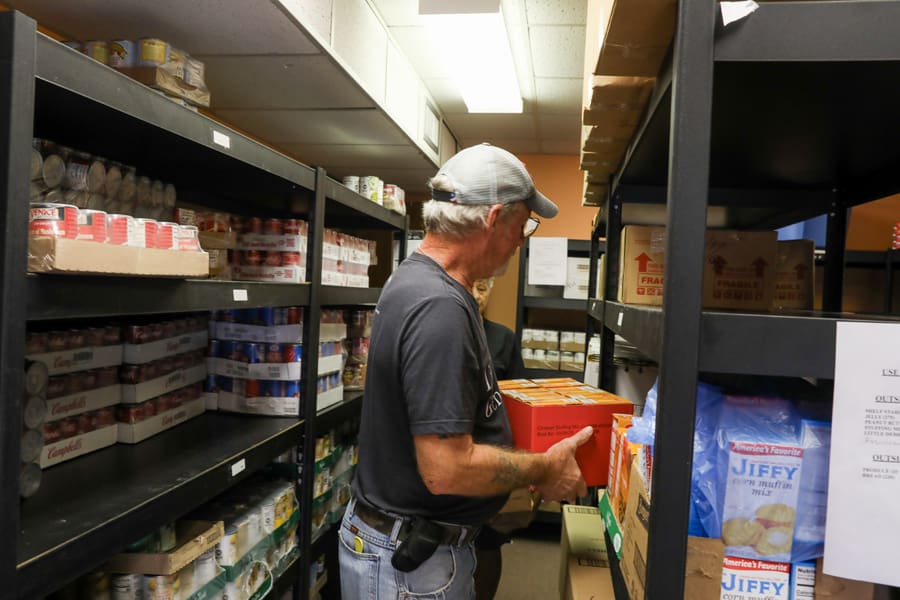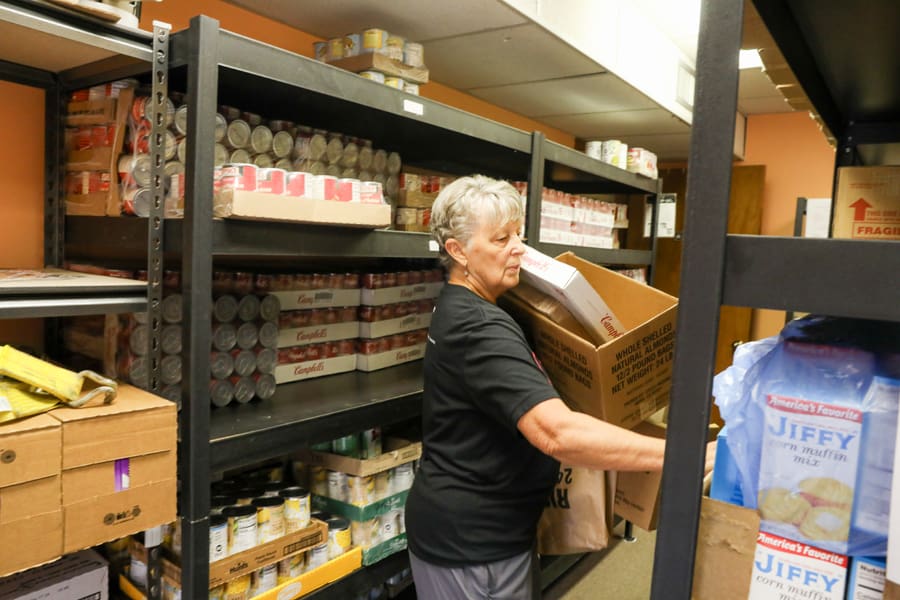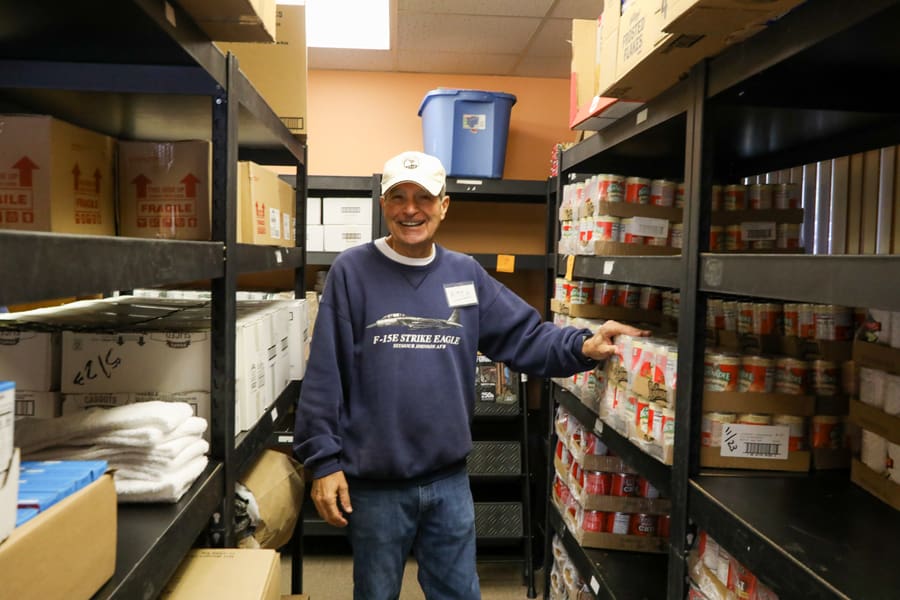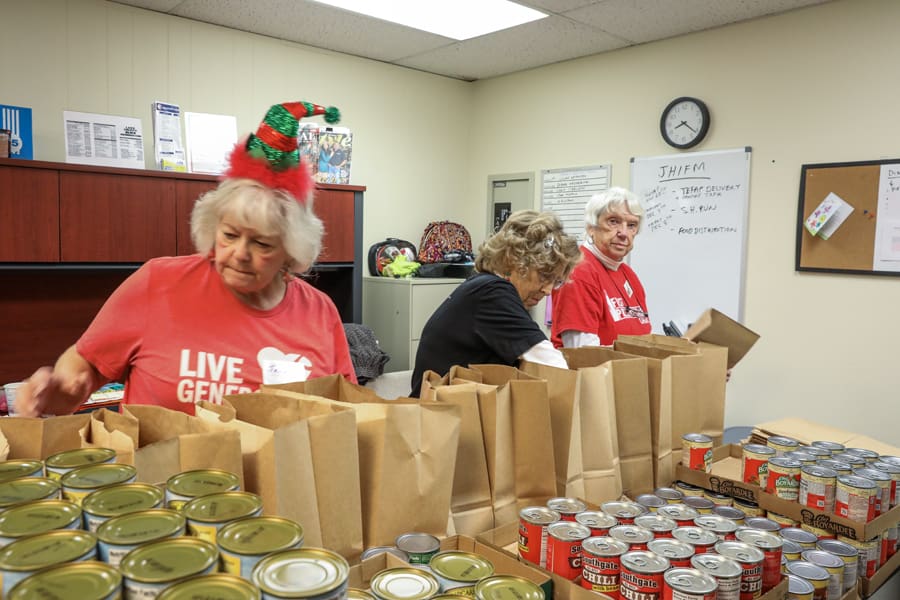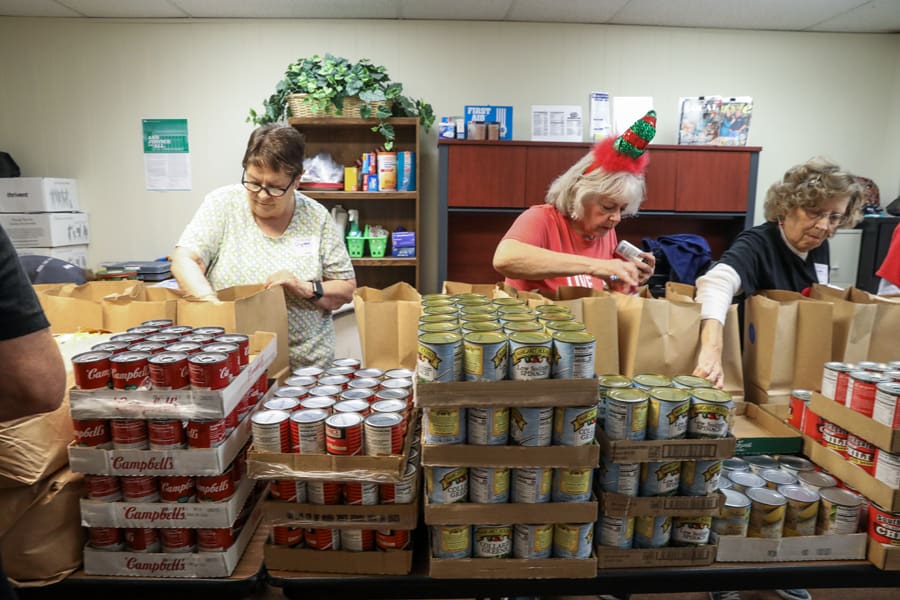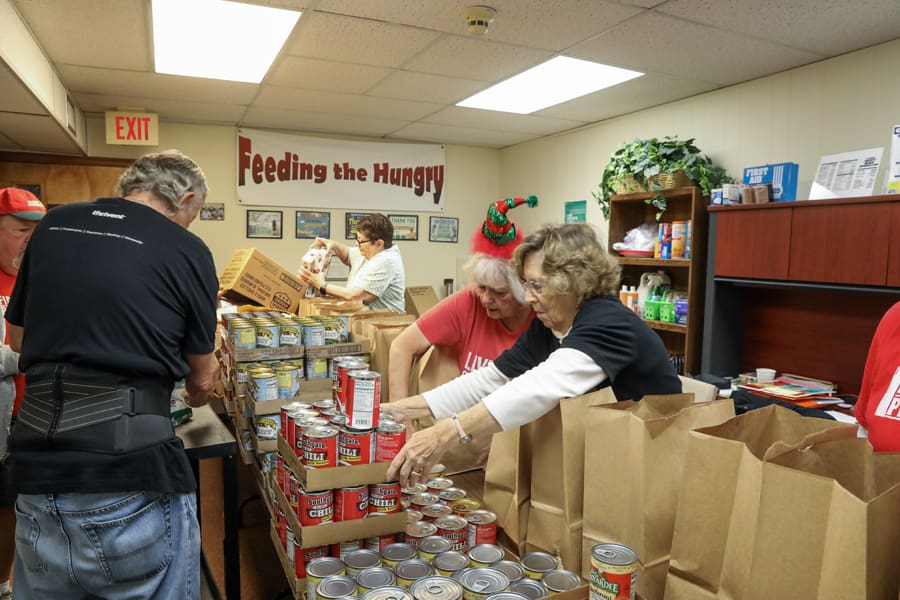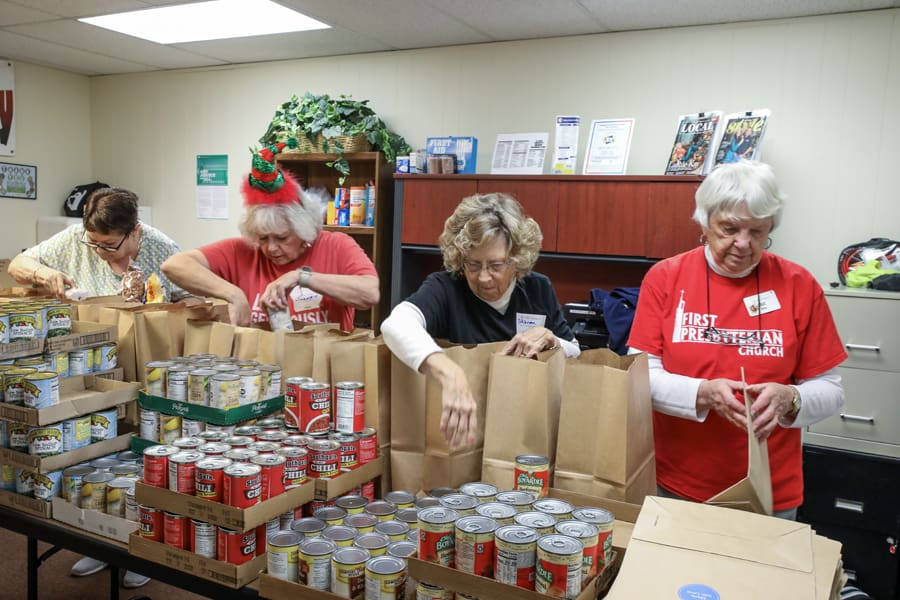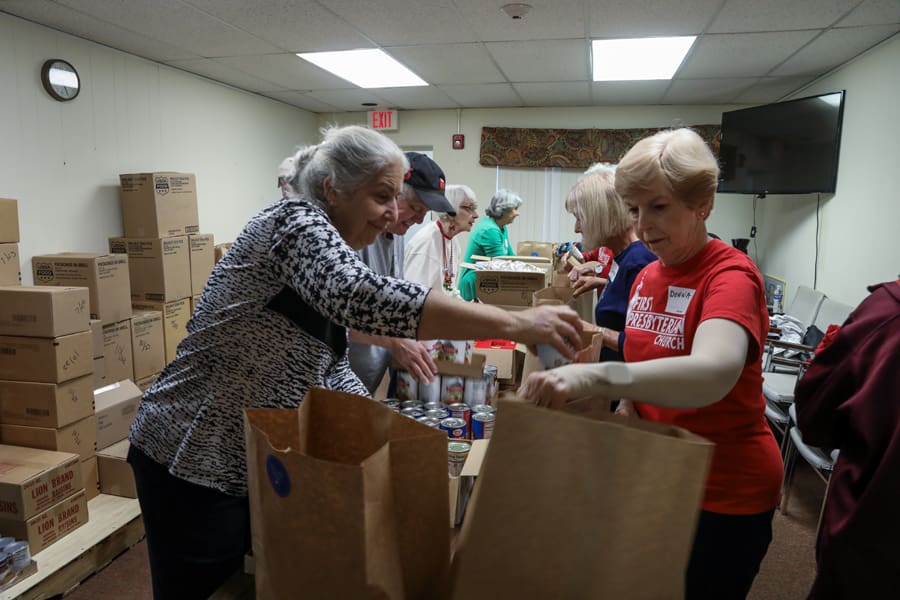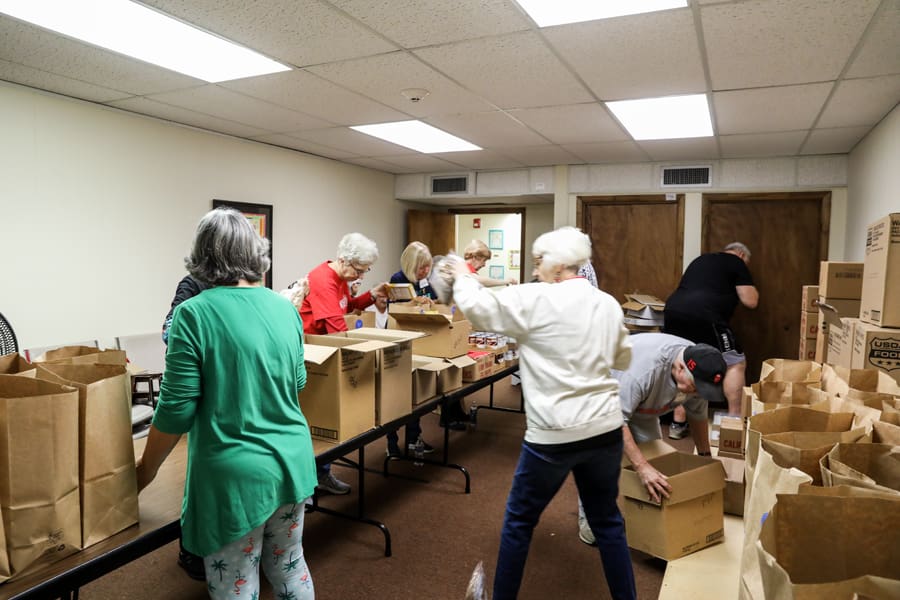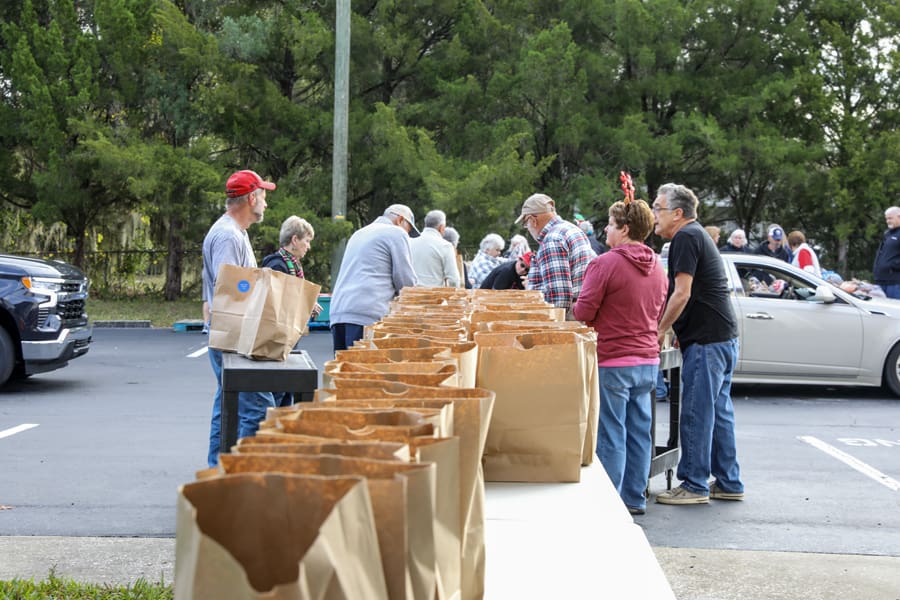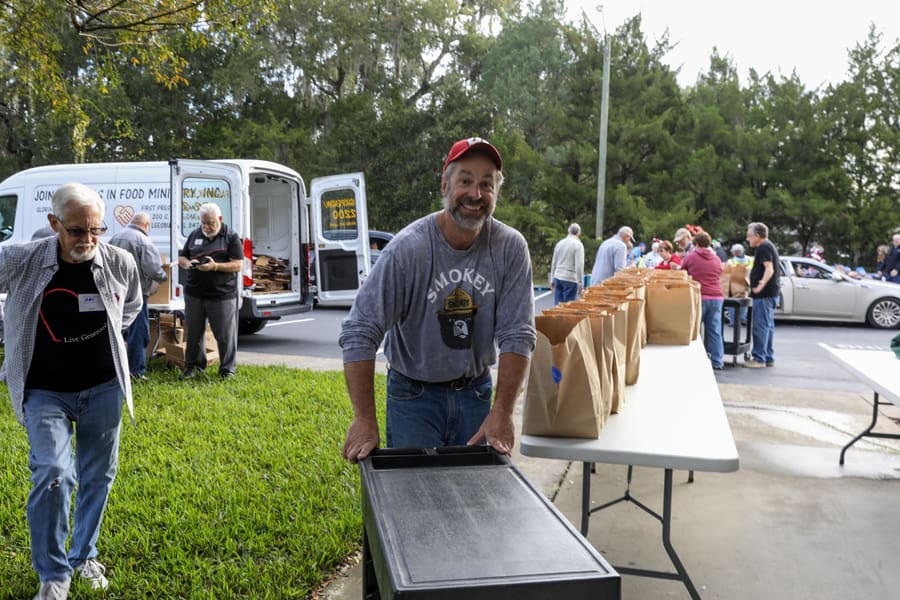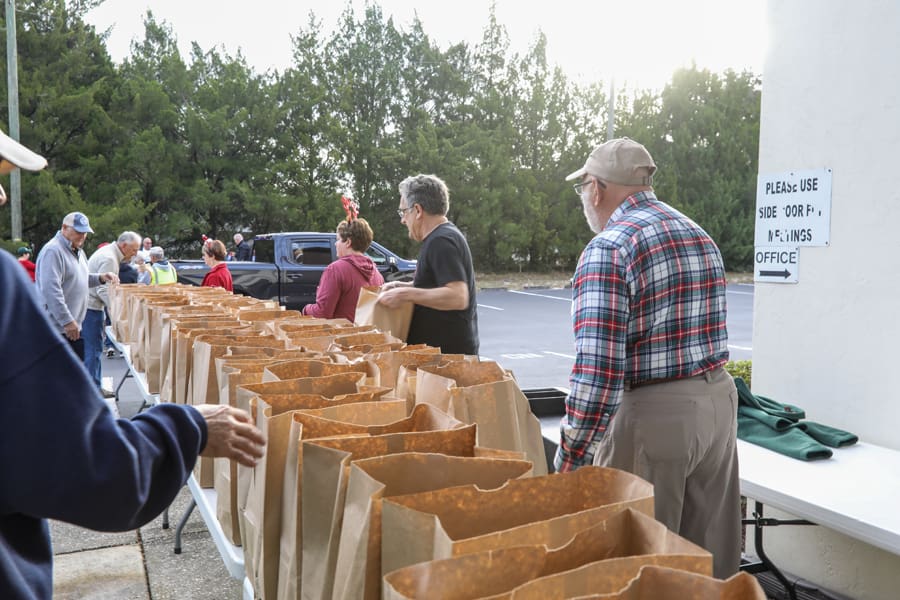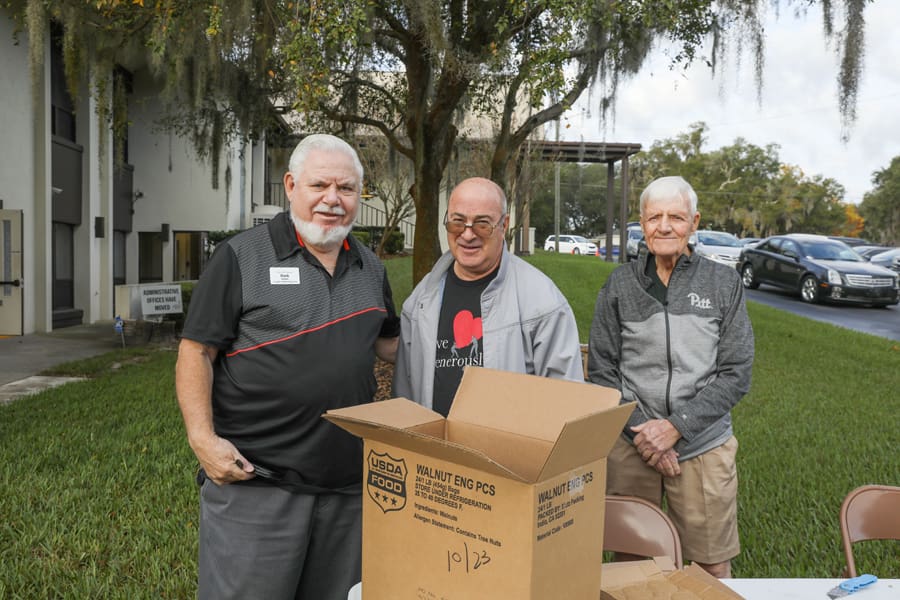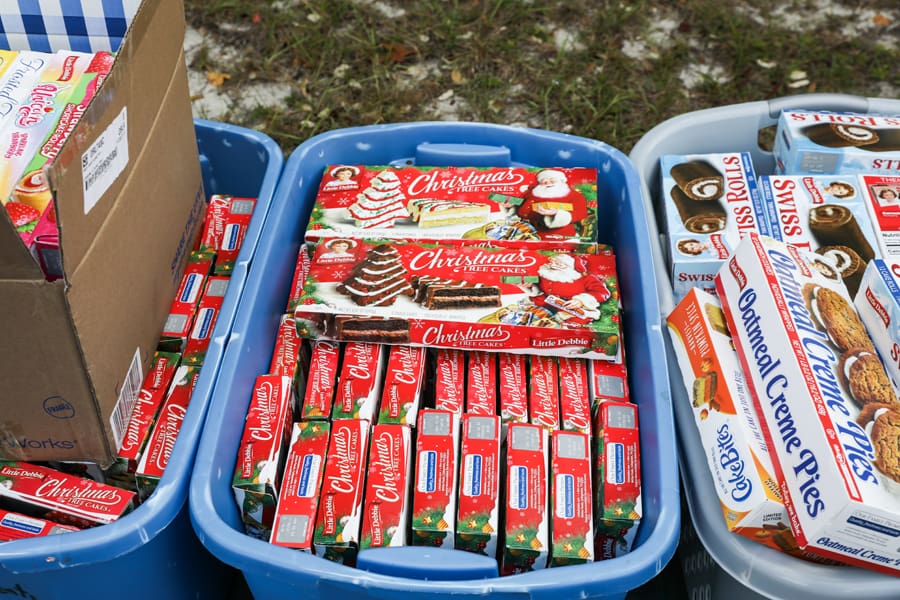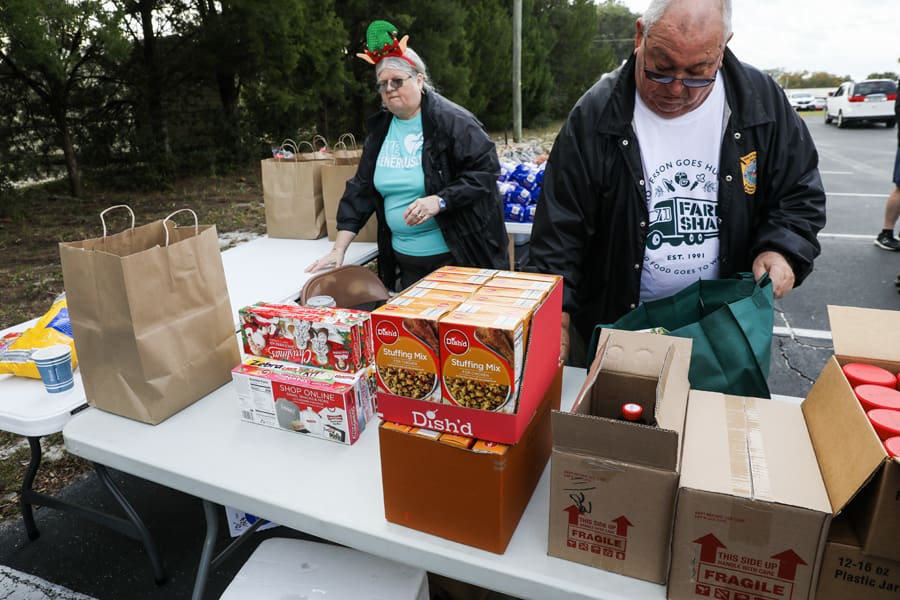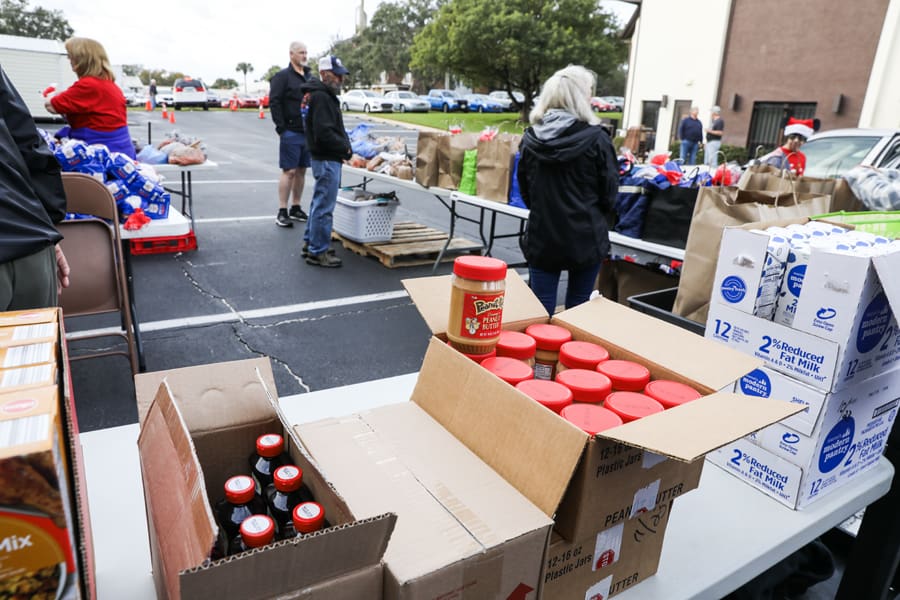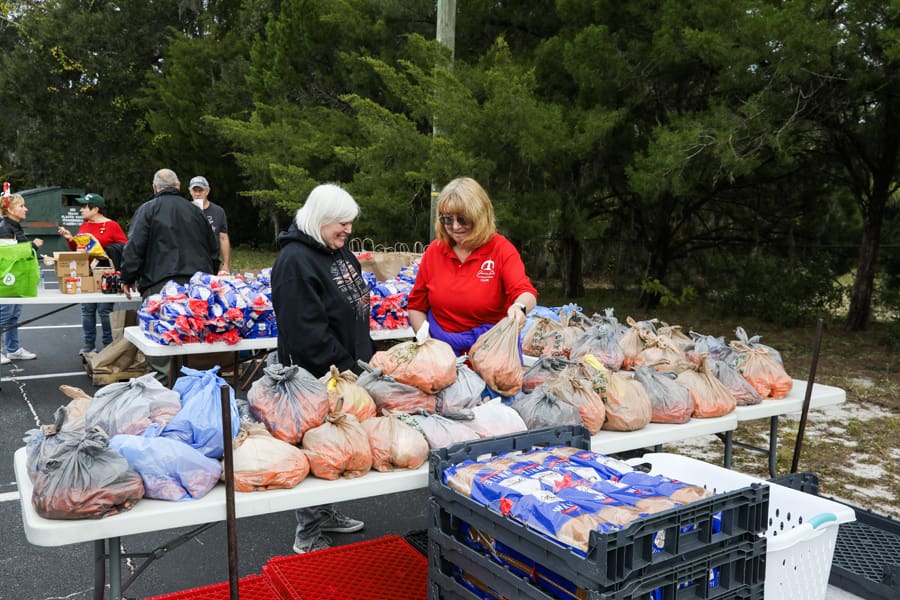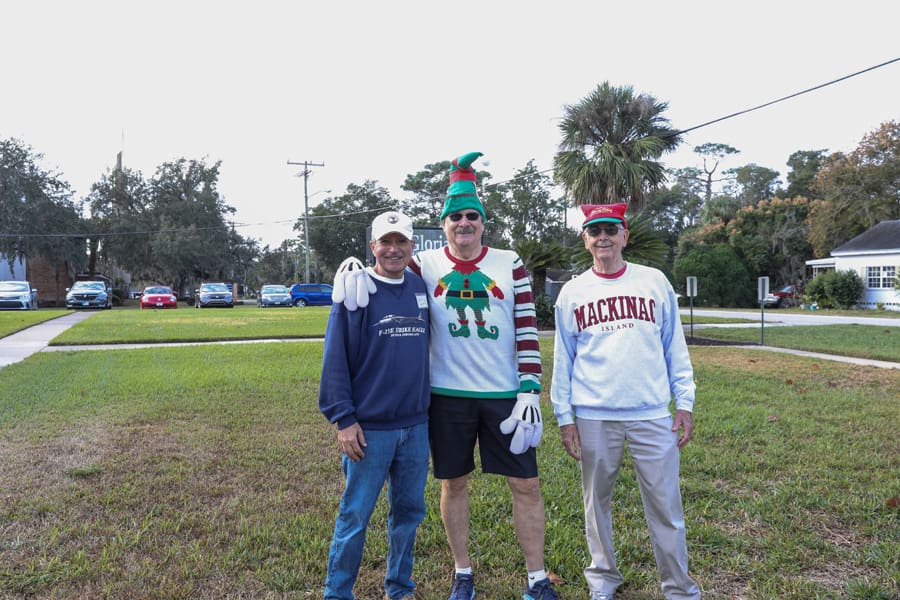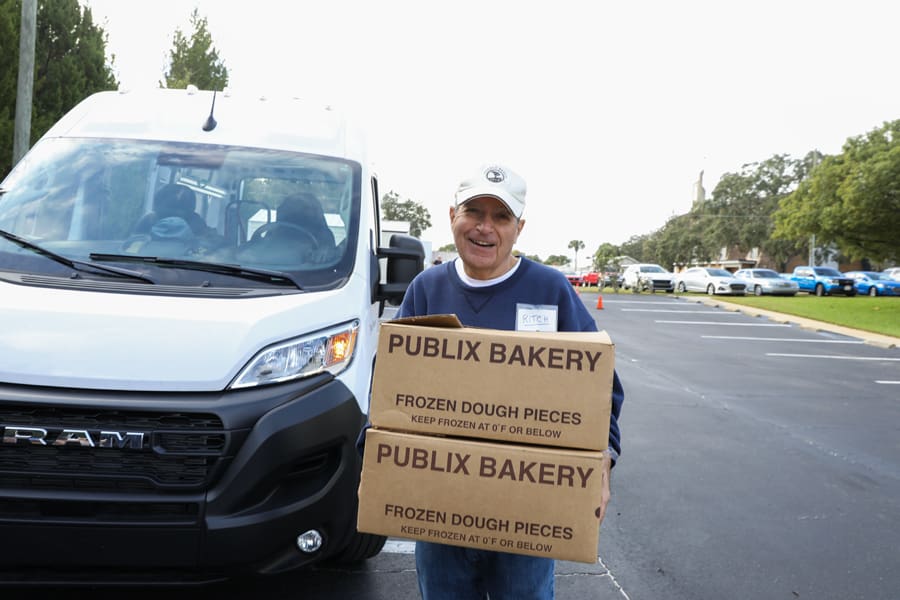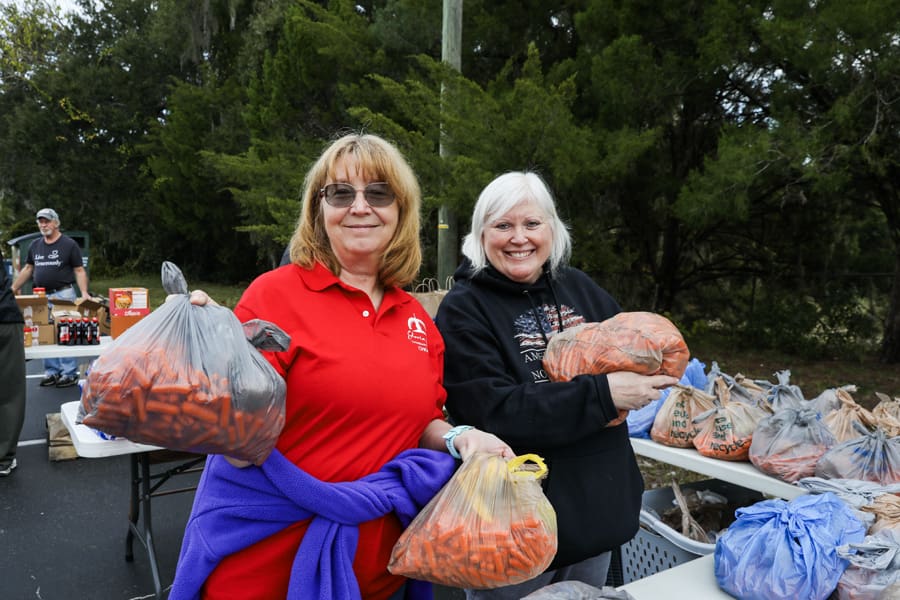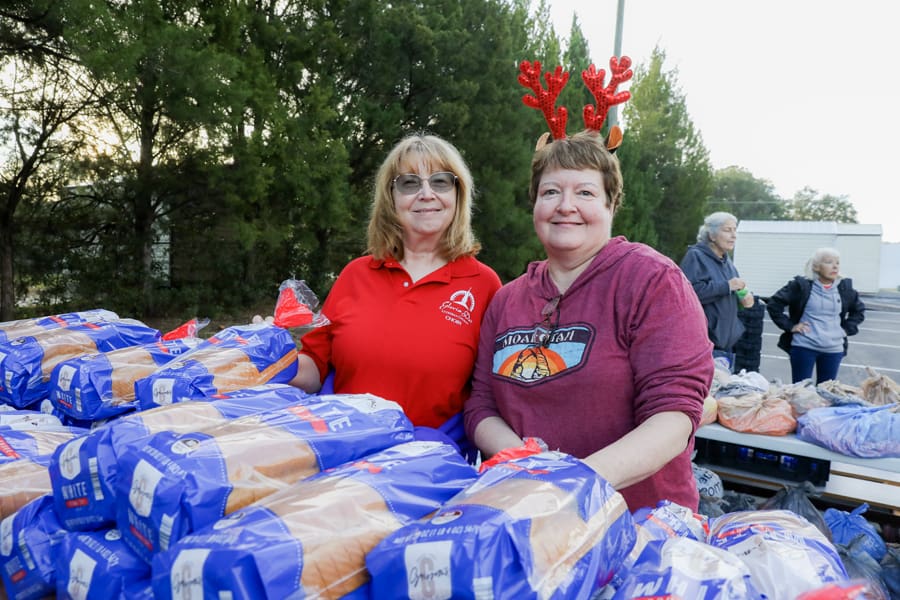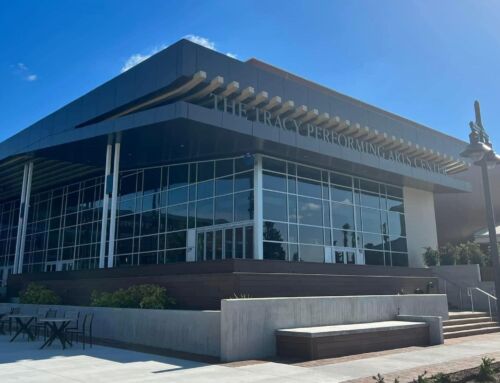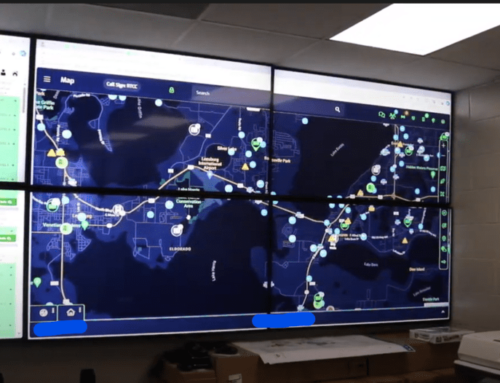
By Cindy Peterson
Food Pantries Essential to Combating Rising Food Insecurity

From Hunger to Hope
I’ll never forget my first time standing in line at a food bank. I felt ashamed. I felt like a failure. Looking around, I hoped no one recognized me.
As I stood in the seemingly endless line holding my 3-year-old son’s hand, tears welled up, impossible to contain. How could this be happening to me? I was doing the best I could. I had lost my home, my job and most of my so-called friends. The weight of it all became too much to bear. I desperately needed help, but I stepped out of the line, walked back to my car and drove away.
Thankfully, a woman from another local food pantry reached out to me to see if I needed anything. It was an answer to my prayers. She discreetly provided me with what I needed, sparing me the humiliation of being watched. Over the next nine months, I slowly but steadily rebuilt my life. With her support and the resources of the pantry, I was able to stand on my own two feet again.
I share my journey because it reflects a reality that many face silently. Despite appearances, countless individuals and families in our communities grapple with food insecurity, which isn’t just about hunger; it’s about the constant worry of not knowing where the next meal will come from and whether it will be enough to sustain yourself or your family.
Recent statistics provided by Second Harvest Food Bank highlight the severity of food insecurity in Central Florida, where one in eight individuals and one in five children face this challenge. Second Harvest Food Bank of Central Florida, operating across seven counties including Lake, is at the forefront of addressing this crisis by distributing enough food for 300,000 meals daily.
Inflation and rising rent costs have created significant challenges in the past few years. Despite low unemployment rates, many families struggle to keep up with the escalating cost of living and often sacrifice food to meet financial obligations. Low-income households attempting to recover from economic setbacks are especially affected.
The growing need for support is confirmed by data from Second Harvest’s Food Finder tool, which indicates a 77% increase in searches for food assistance in 2023 compared to the previous year.
On the following pages, you’ll discover resources highlighting the efforts of local food pantries and ministries operated by Good Samaritans who selflessly dedicate themselves to supporting individuals during their most challenging times.
Lake Cares Food Pantry
Where: 2001 W. Old Hwy. 441, Mount Dora
When: 9-11:30am, Tue-Wed, 9-10:45am Sat
Info: New clients or senior walk-ins should call 352.383.0100 for scheduling. Visit lakecares.org.
About: Lake Cares Food Pantry’s core mission of providing essential food items and support services directly to those facing food insecurity is supported by the generosity of the community and the guidance of the Second Harvest Food Bank. A food pantry team of three full-time staff members, six part-timers and 262 trained volunteers delivers a range of vital programs and services. That includes a weekend children’s feeding program that serves 229 kids, 15 emergency food distributions each week, support of students with Autism, food assistance for the homeless, stocking new homes with food through Habitat for Humanity, partnering with Forward Paths Foundation to provide food for youth in foster care and running seven satellite distribution sites across the county. The food pantry served 1.3 million lbs. of food (1.5 million meals) to 66,157 individuals in 2023. “We are constantly telling people it’s the working middle class that ends up finding themselves in need of help,” Director Kelsey Gonzalez says. “So many people live paycheck to paycheck that one unexpected expense can mean the difference between having food on the table or paying the electric bill.”
The Neighborhood Center of South Lake
Where: 14727 Timber Village Rd., Groveland
When: 9am-noon, Tues-Wed, 1-4pm Thu, 9am-noon Fri
Info: Visit tncsl.org or call 352.429.1200
About: The Neighborhood Center of South Lake was founded by a group of six women from the First United Methodist Church of Clermont. Their dedication to supporting vulnerable neighbors laid the foundation for a lasting legacy that persists today. Each week, the center extends a helping hand to 350-400 South Lake County families, equipping them with resources they need to reclaim control of their lives and build a brighter future. Assistance includes access to fresh, healthy food, medical support, education and training opportunities and help with applying for essential services like food stamps, Medicaid and emergency aid. In 2023, the center made 69,825 family visits, provided 837,294 meals and distributed 1.8 million lbs. of food.
The Benevolence Center
Where: 118 North 14th St., Leesburg
When: 9am-11am, Mon-Fri
Info: Call 352.787.5289 or visit christiancarecenter.org/benevolencecenter.
About: The center provides food, clothing and household items free of charge to needy Lake County residents. Families receive five days’ worth of food and eight articles of clothing per family member each month. The center serves more than 160,000 lbs. of food to an average of 2,400 people each month. The Benevolence Center is part of a larger mission through the Christian Care Center on the First Baptist Church campus in Leesburg. Along with providing food, clothing and household items, the center offers assistance in counseling. It also provides medical care and job programs and operates a pregnancy and family center, a children’s shelter, a men’s center and a women’s center.
What can you do?
Primary ways to contribute:
• Donate nonperishable food directly to local food pantries or through community drives.
• Provide monetary support. Every $10 can supply 40 meals.
• Volunteer. The need is greatest as summer approaches.
• Advocate for policies addressing food insecurity.
We can make meaningful strides in alleviating hunger and supporting our neighbors in need by mobilizing community resources and support.
Originally from the small town of Berryville, Arkansas, Cindy has become a multimedia specialist in journalism, photography, videography, and video editing. She has a B.S. in Communications from the University of Central Arkansas and produces Style Magazine's Sports Hub Podcast and the Healthy Living Podcast. She also produces for Beacon College’s Telly Award-winning PBS show, “A World of Difference.” When she isn’t working, Cindy loves traveling the National Parks with her husband , Ryan, and son, David, photographing wildlife.


